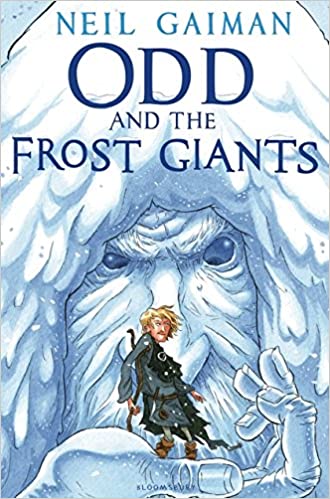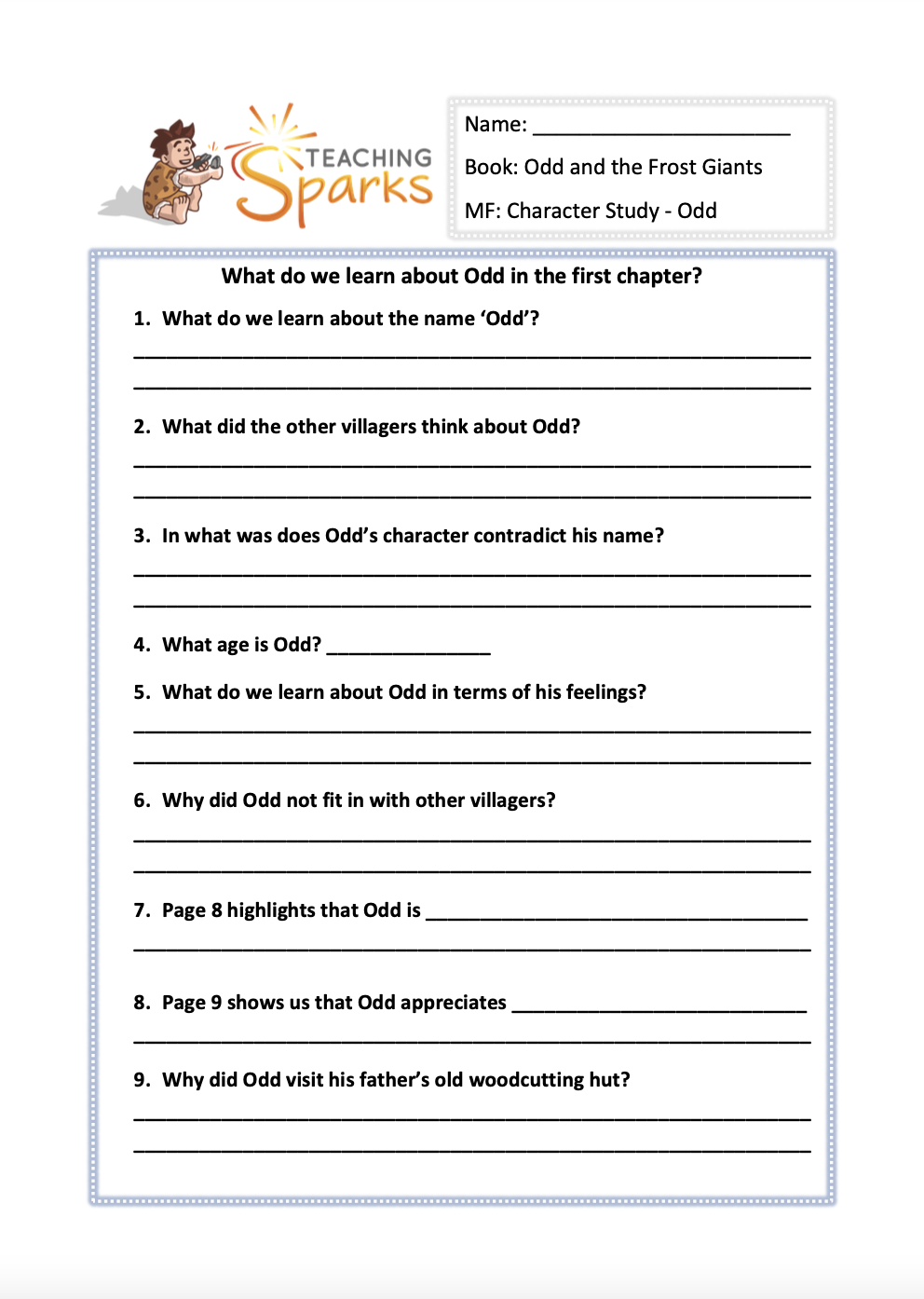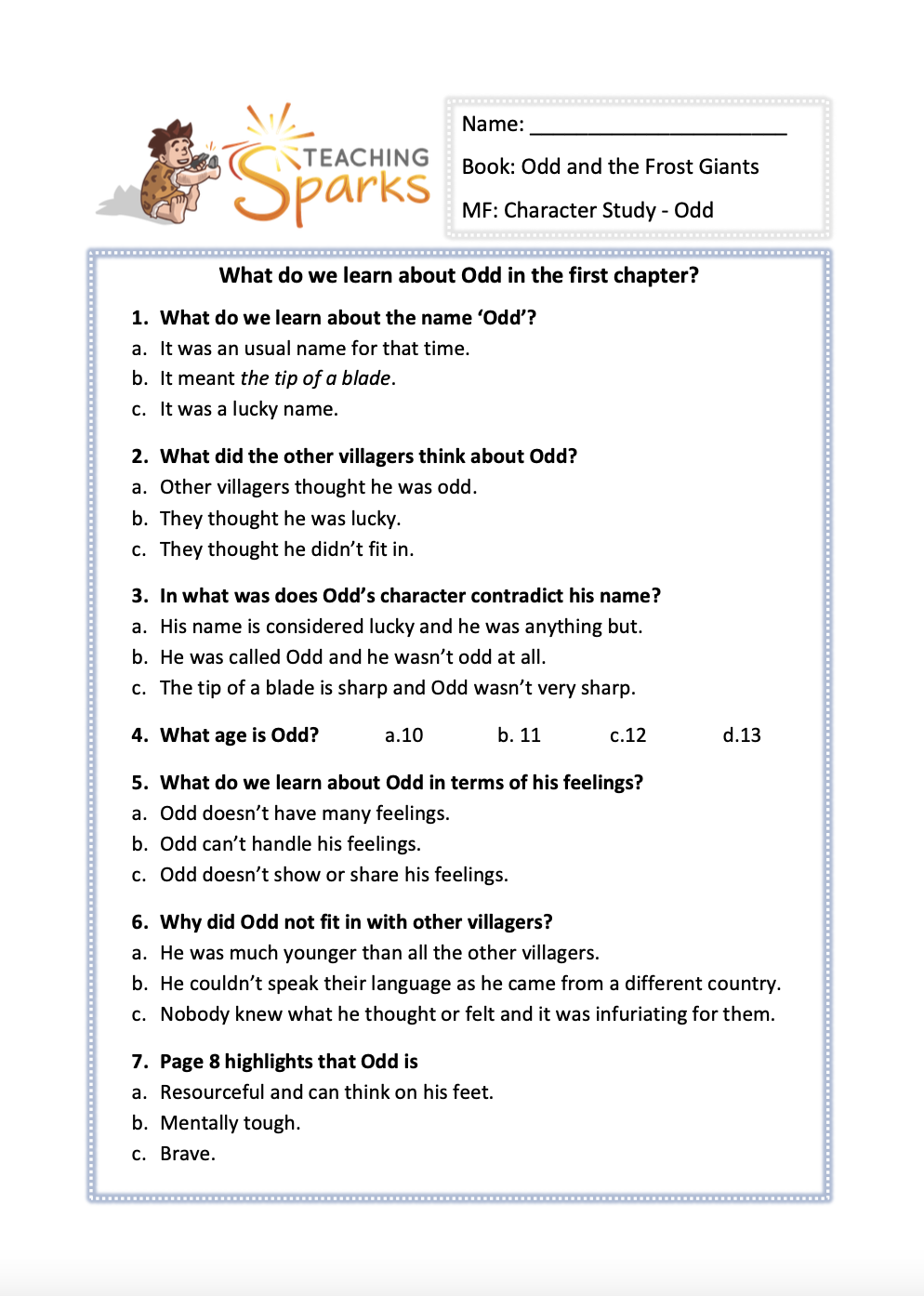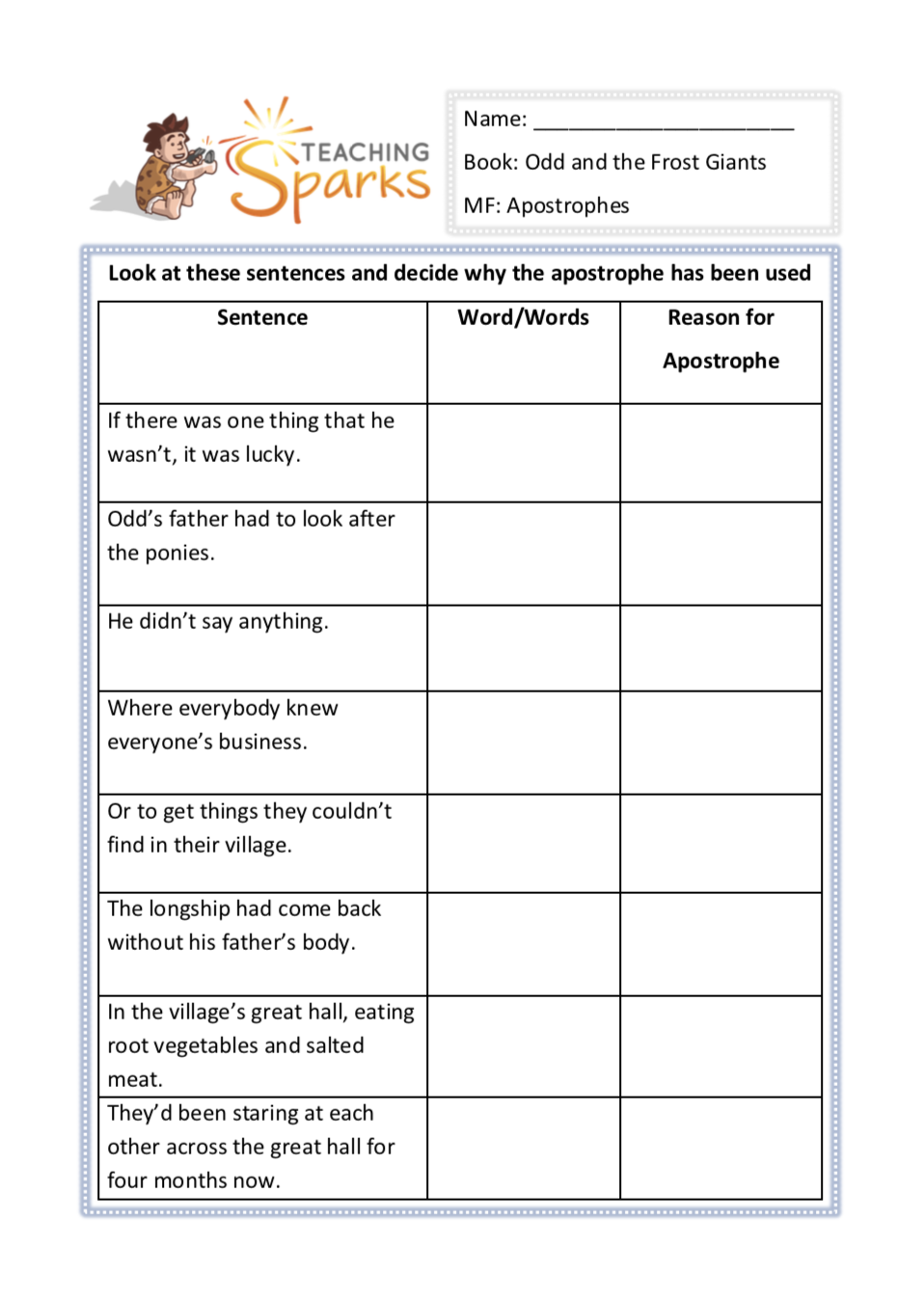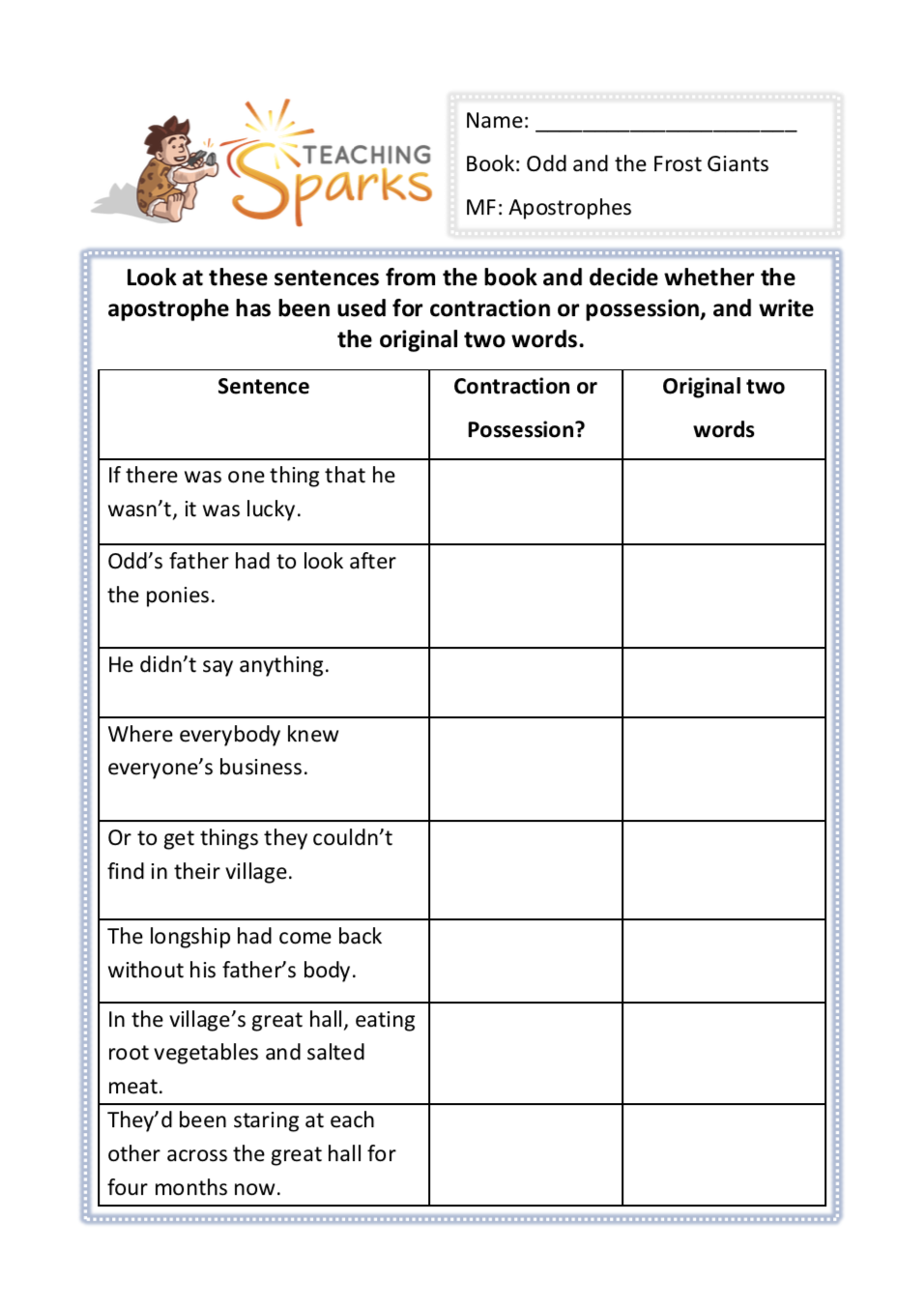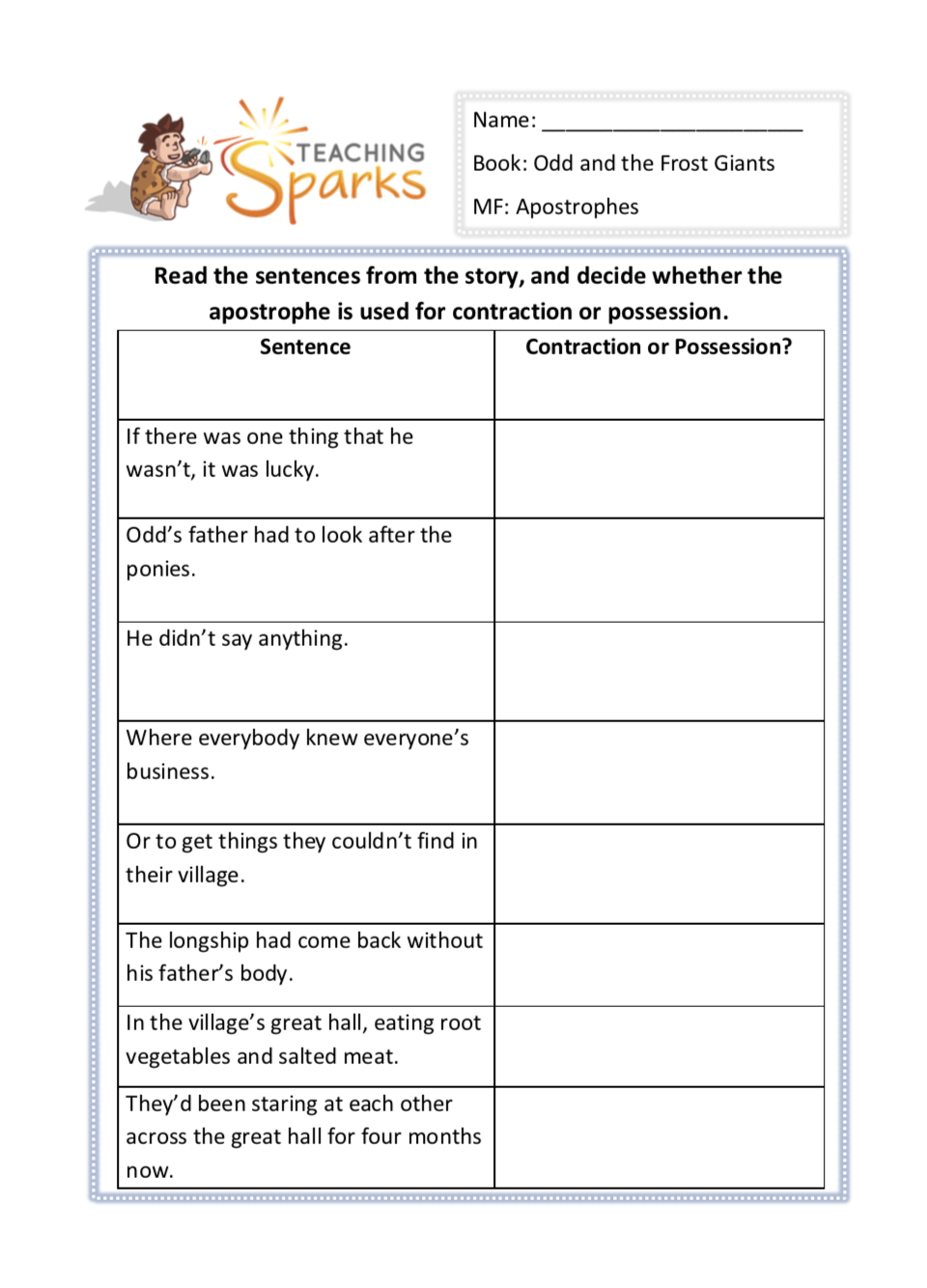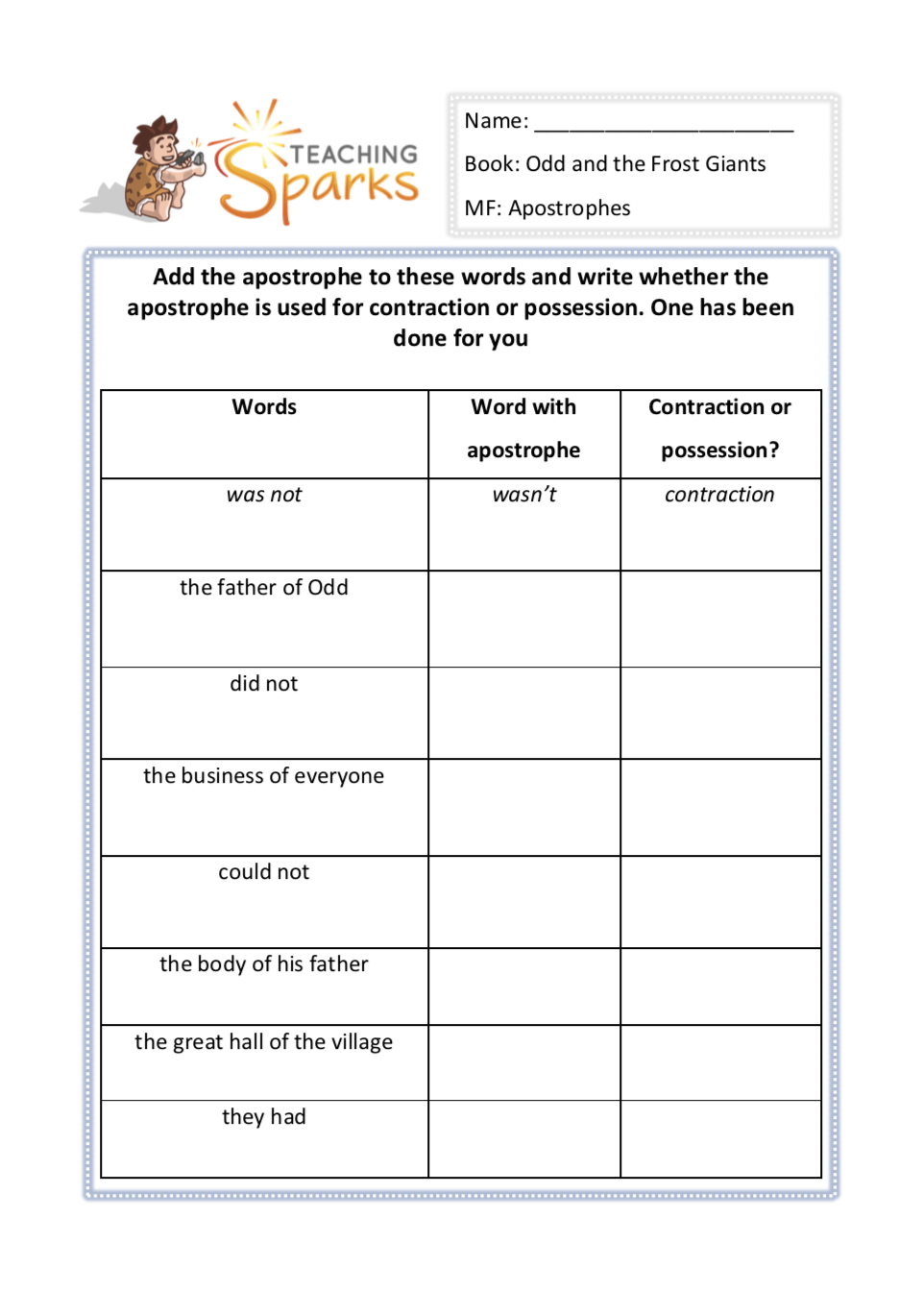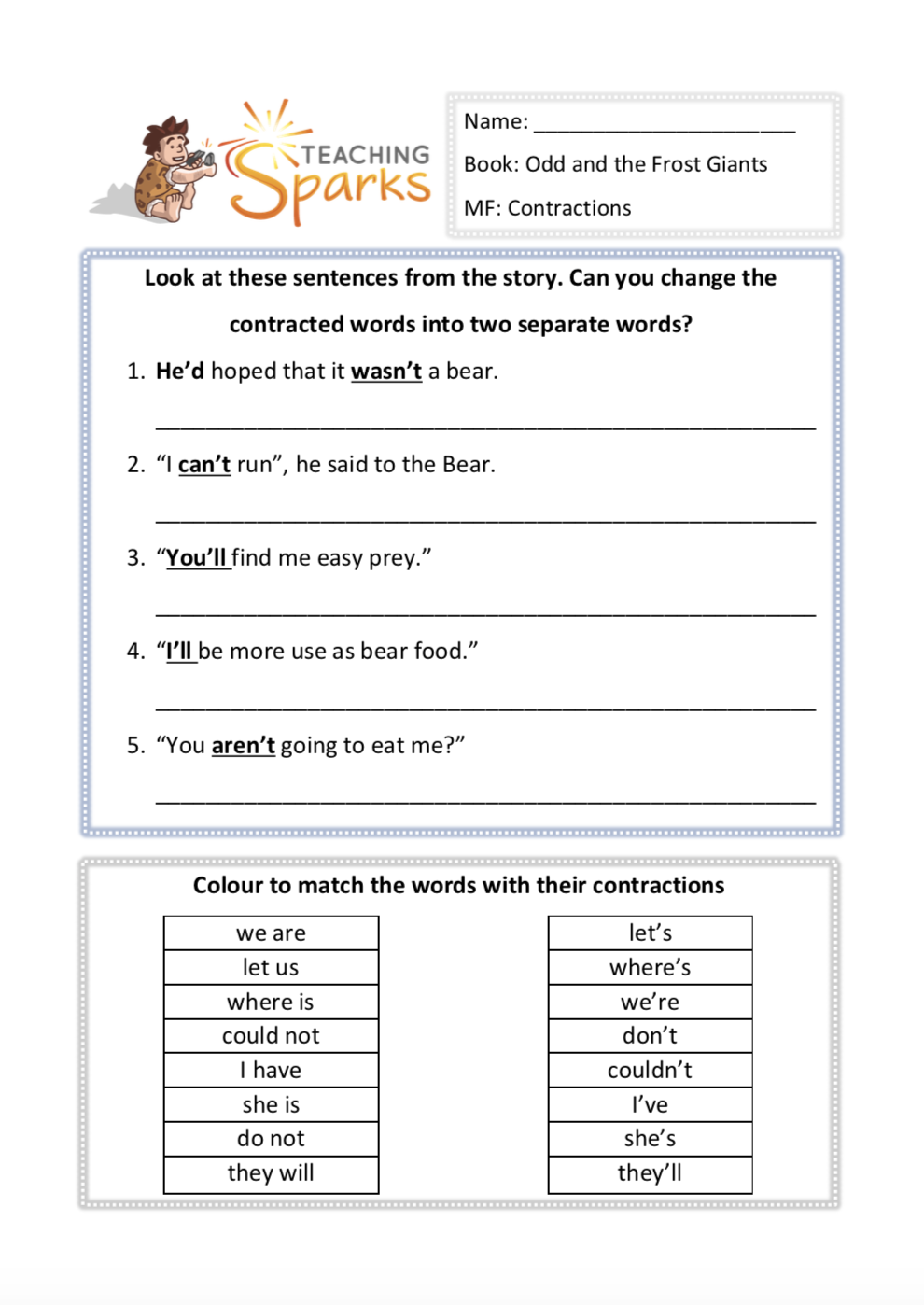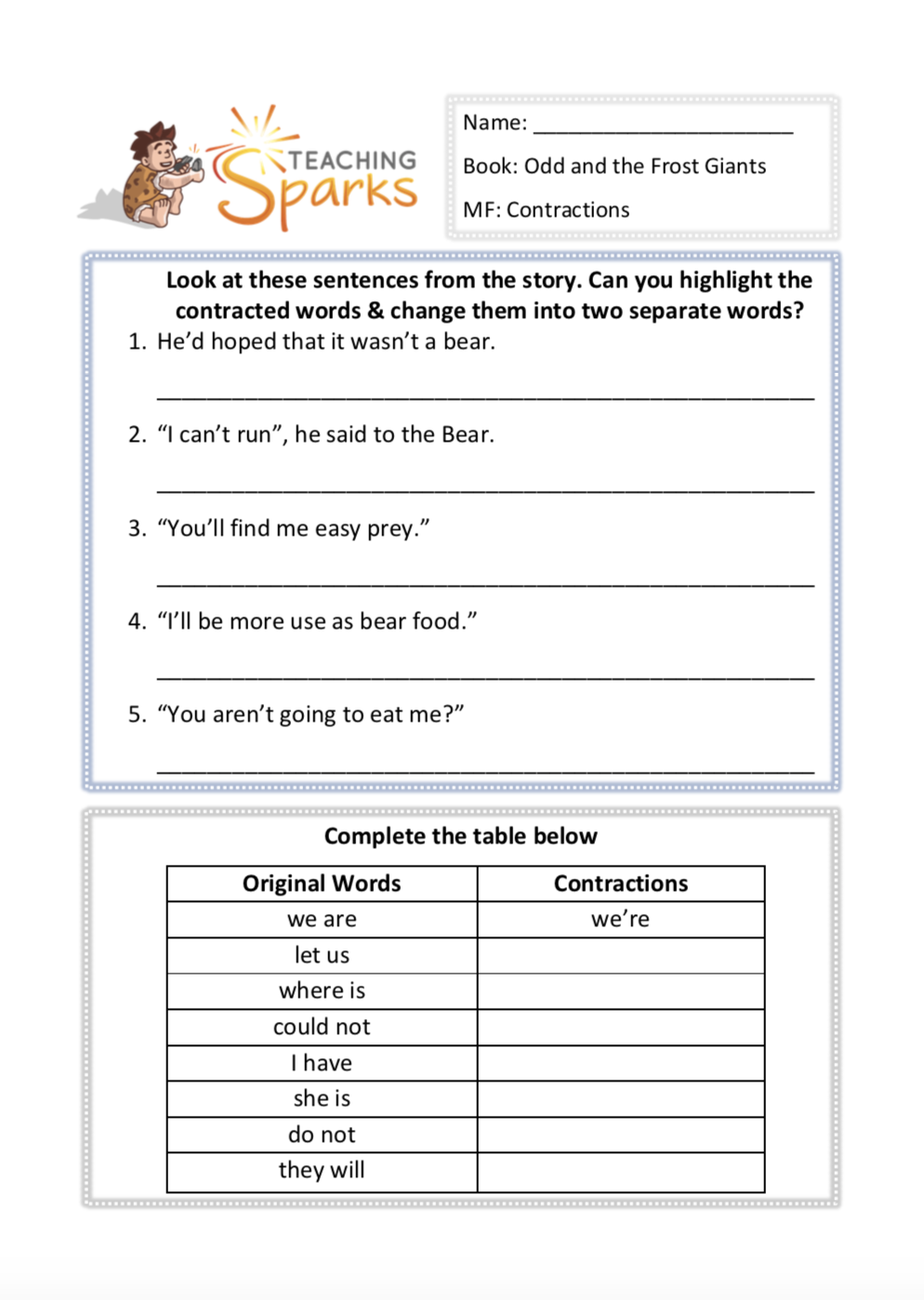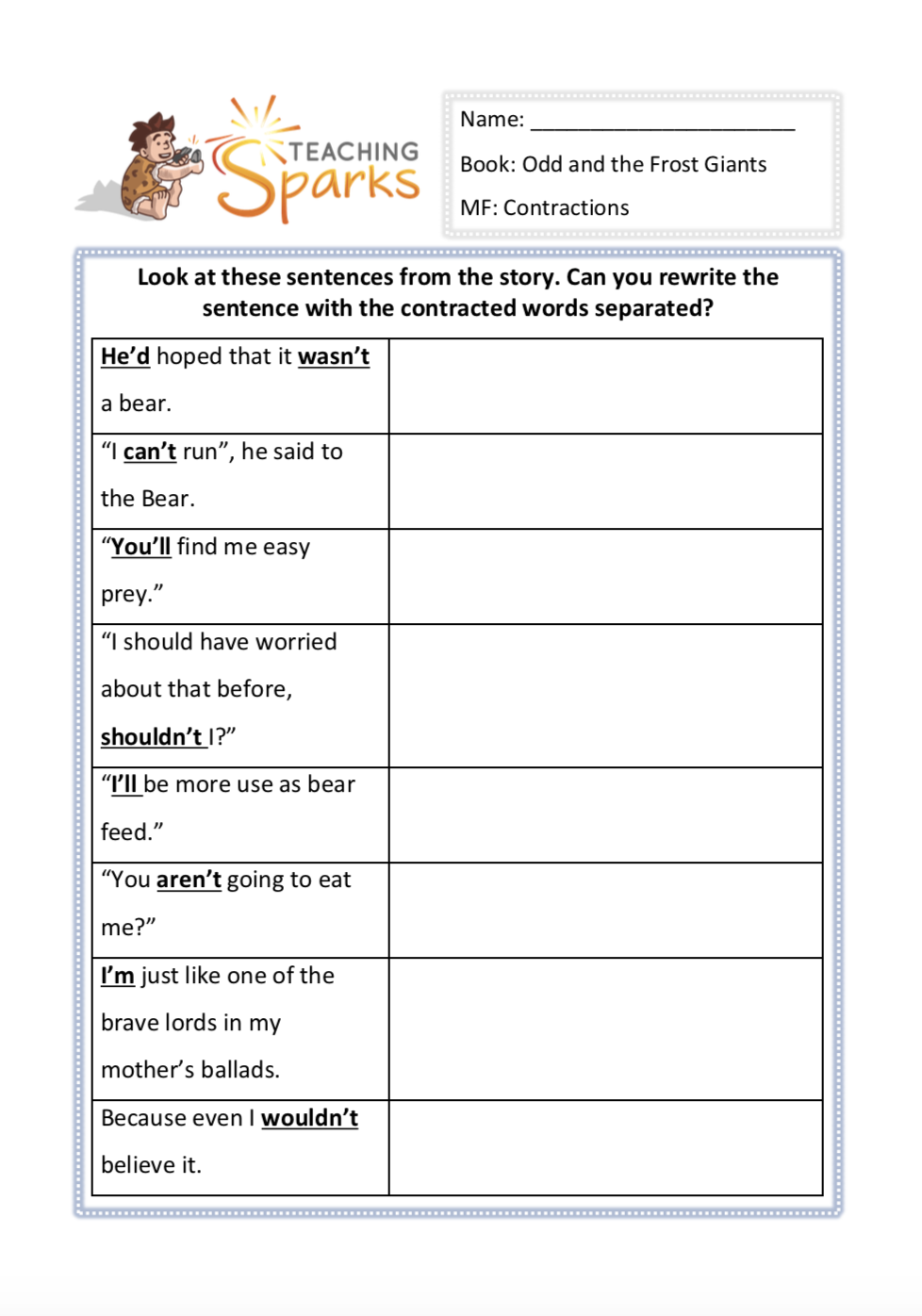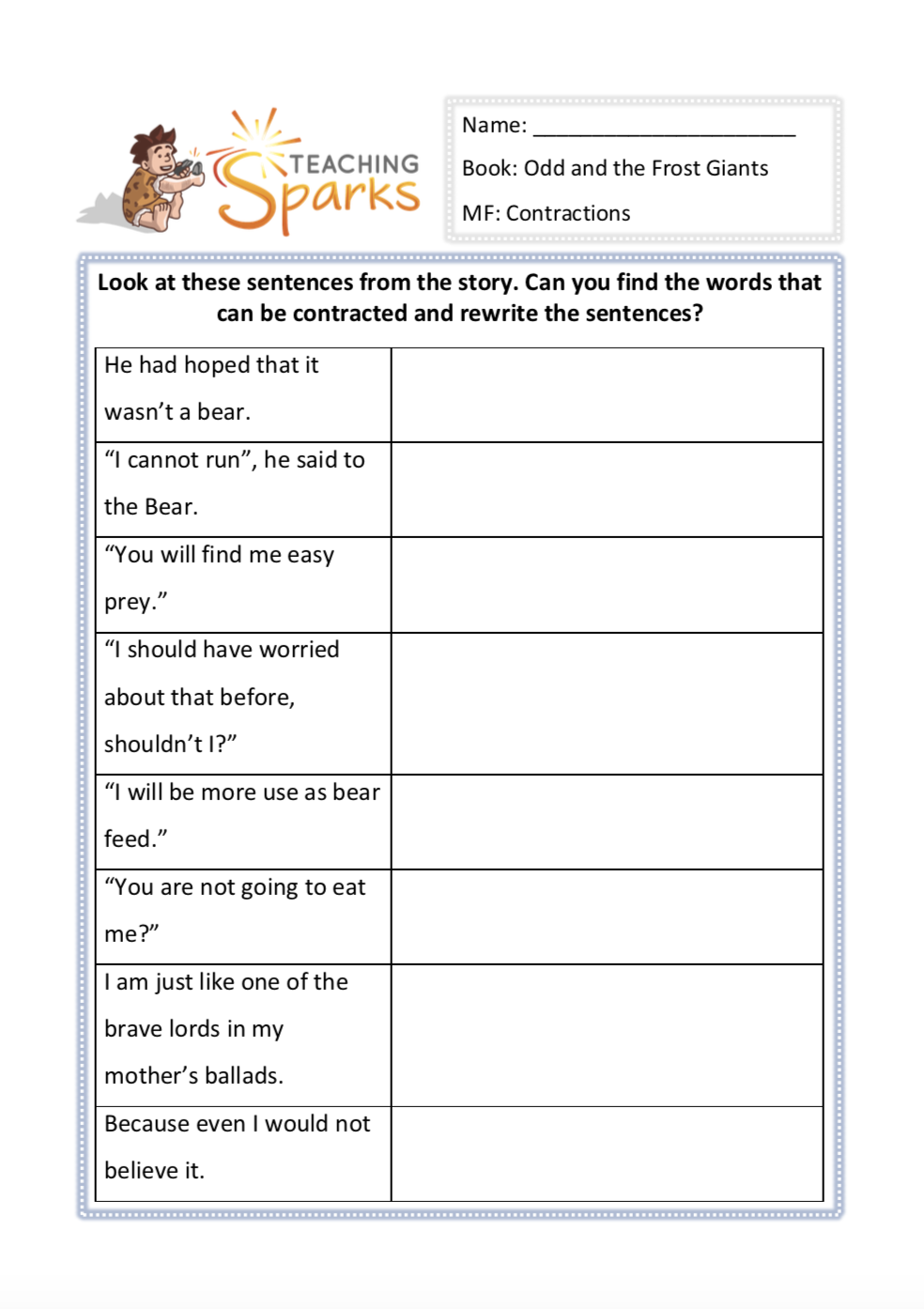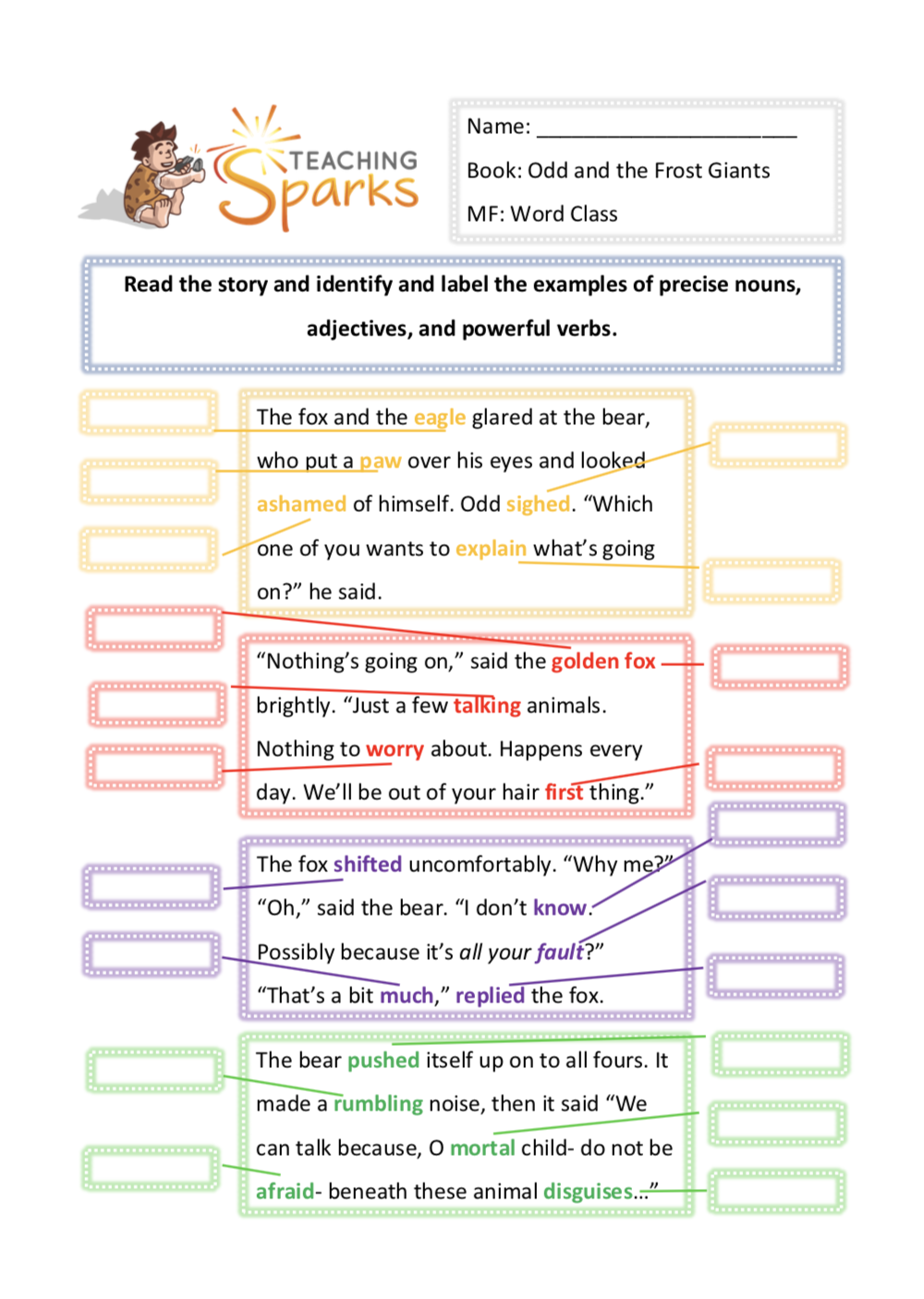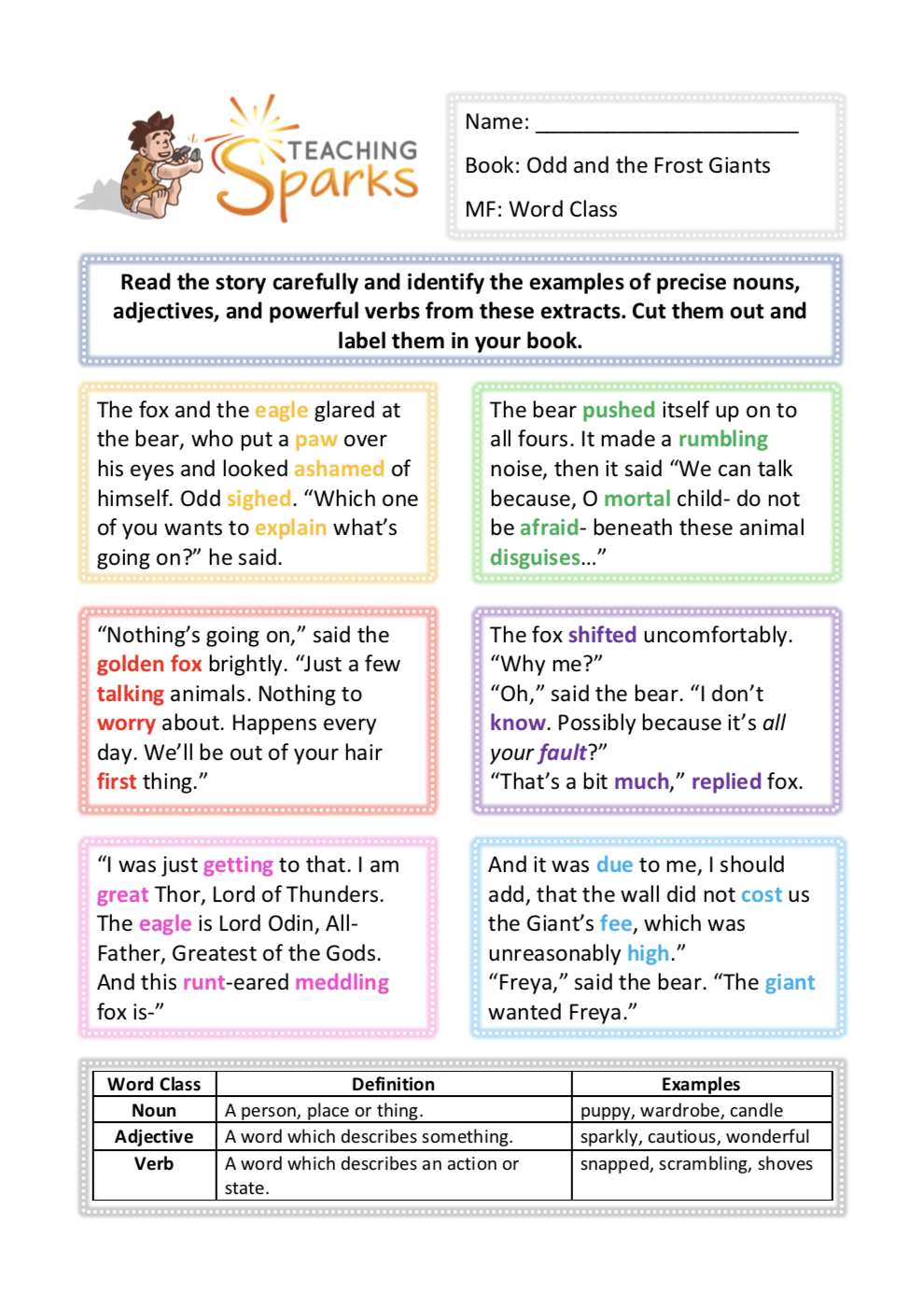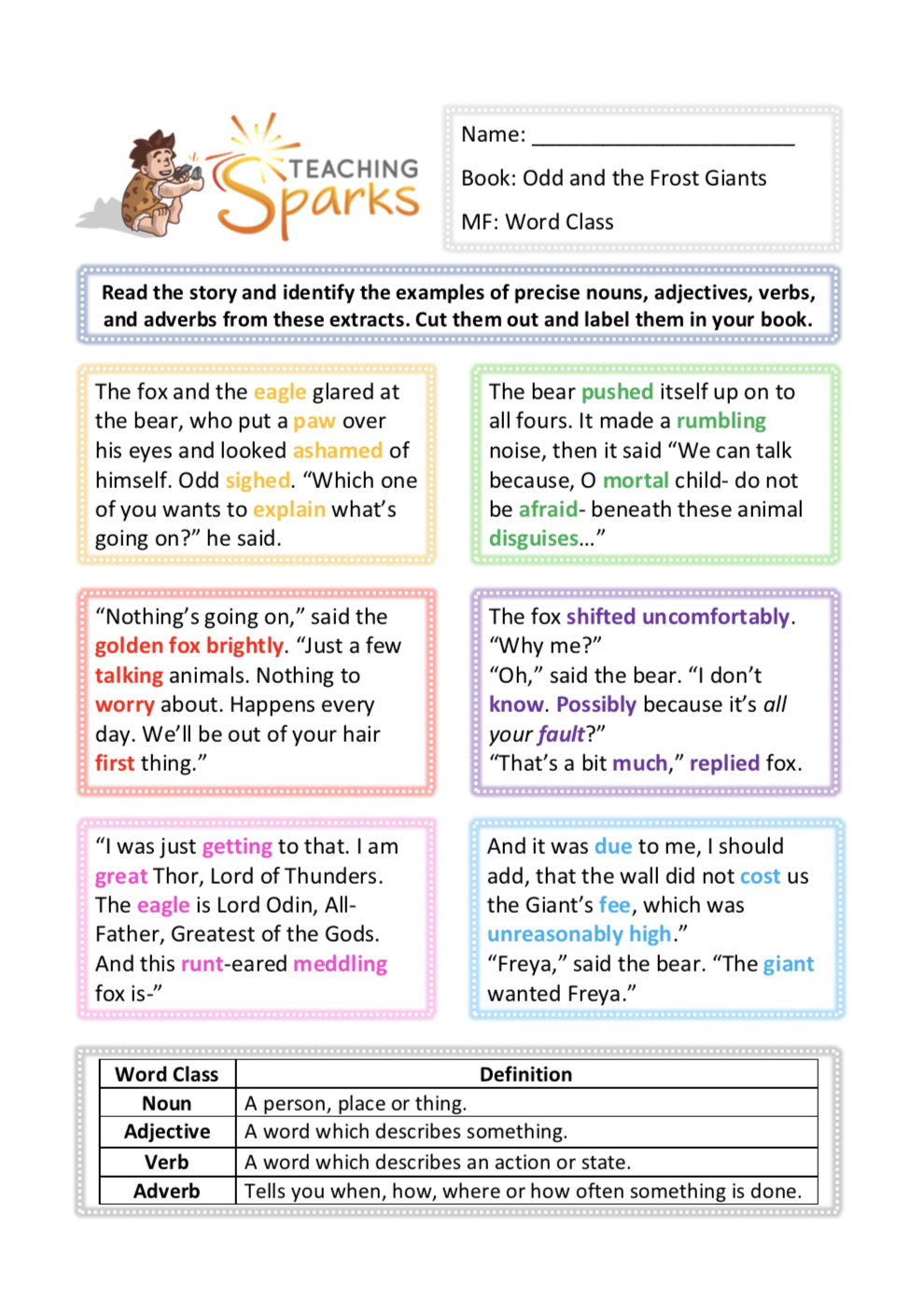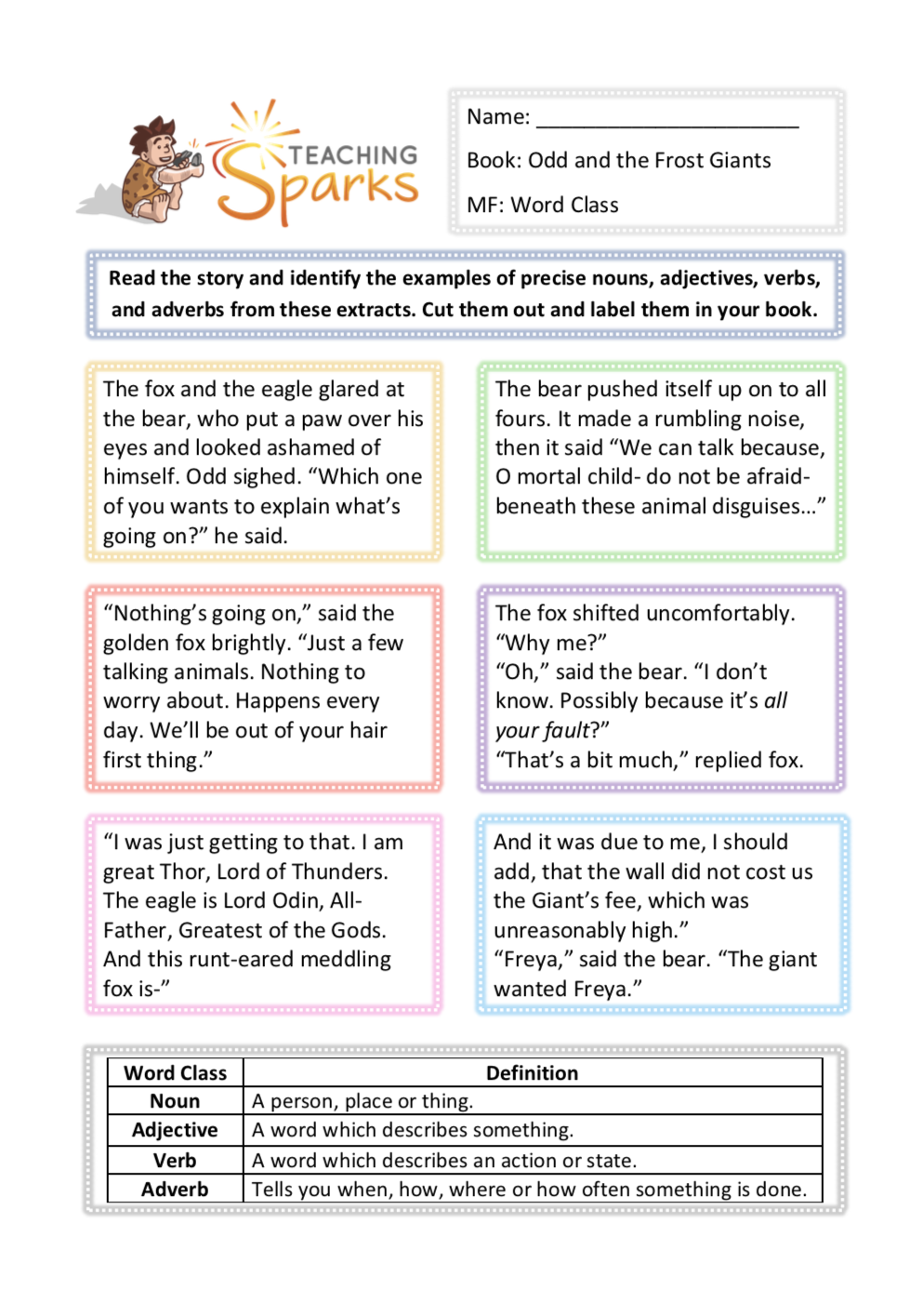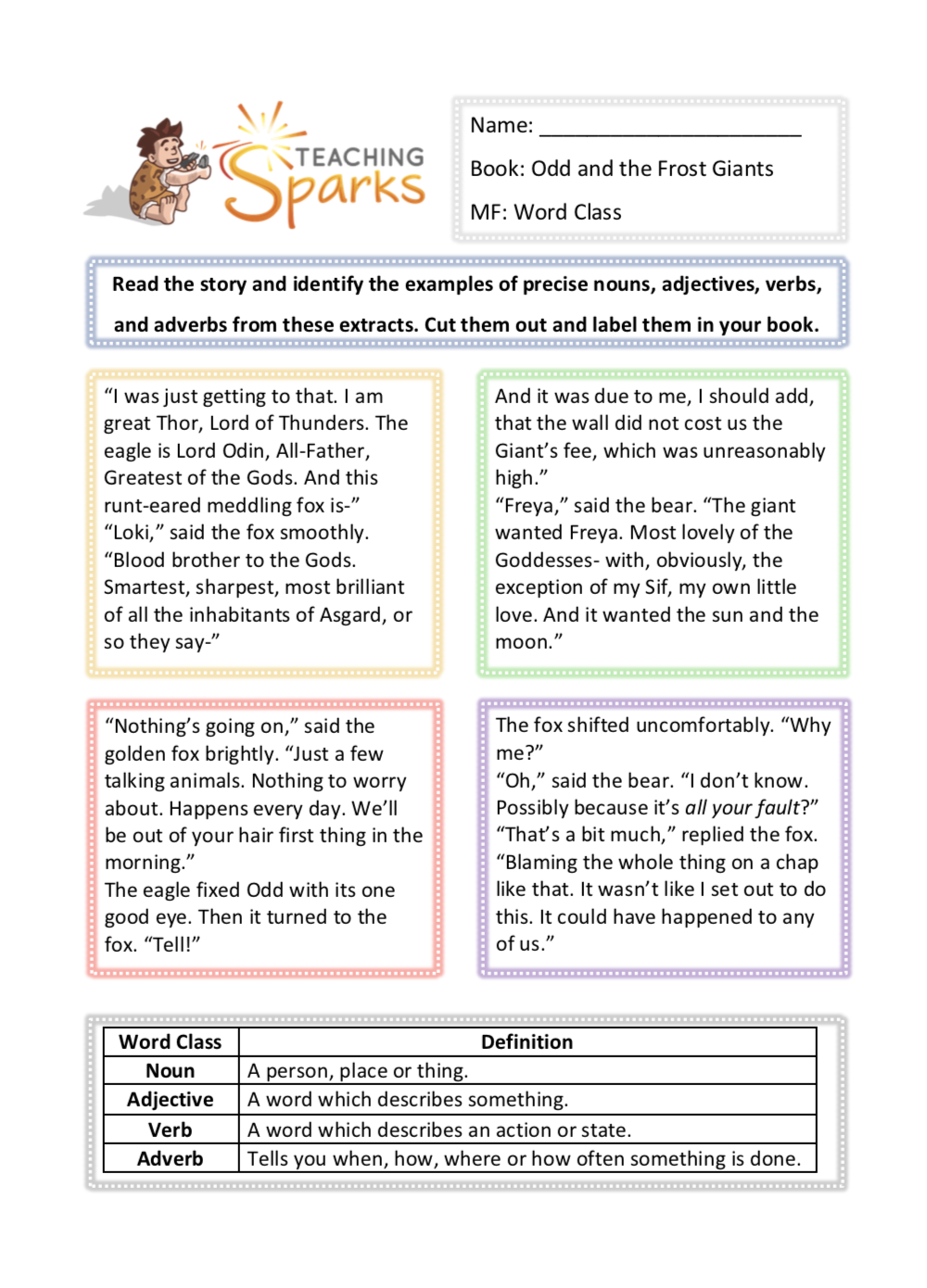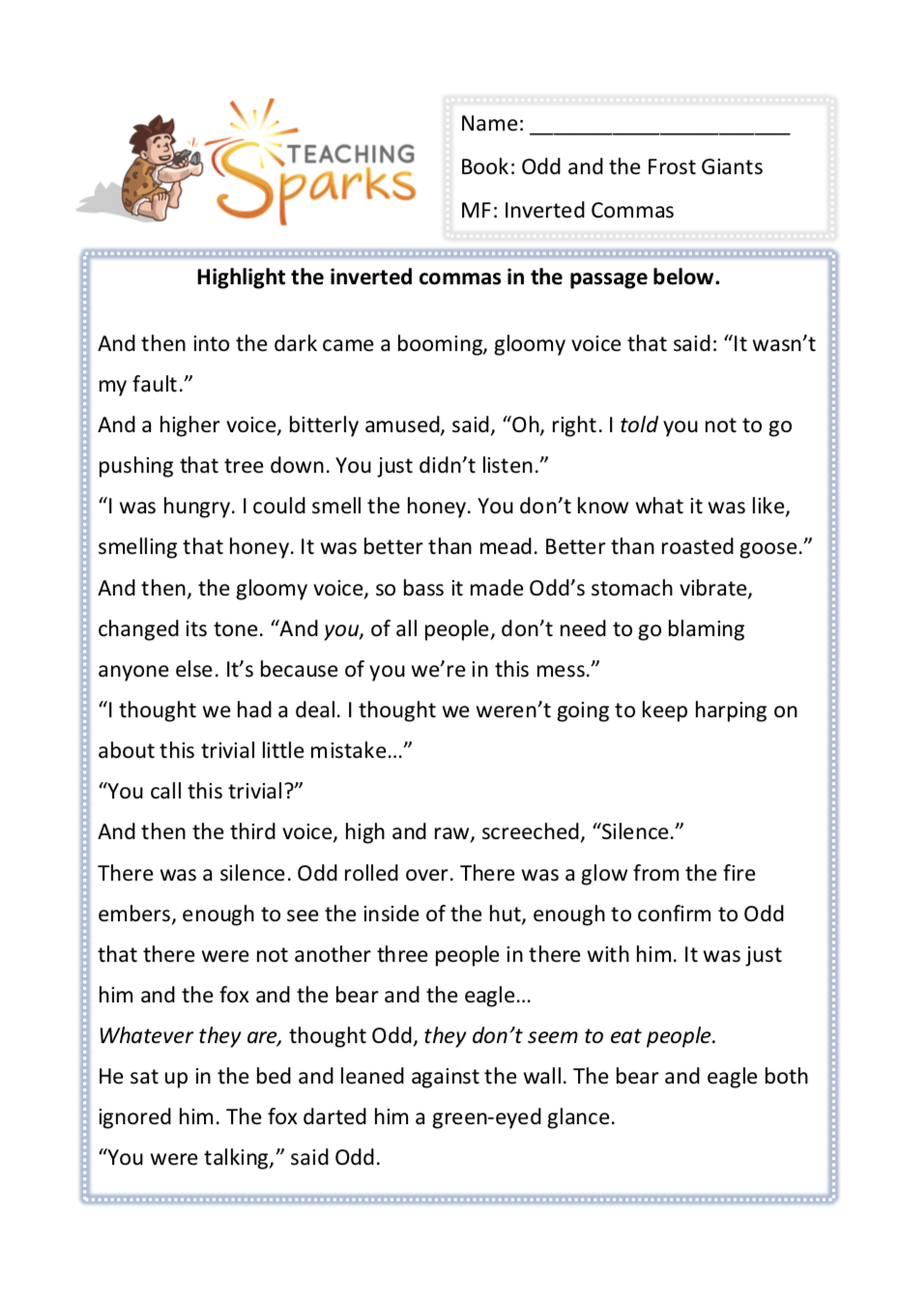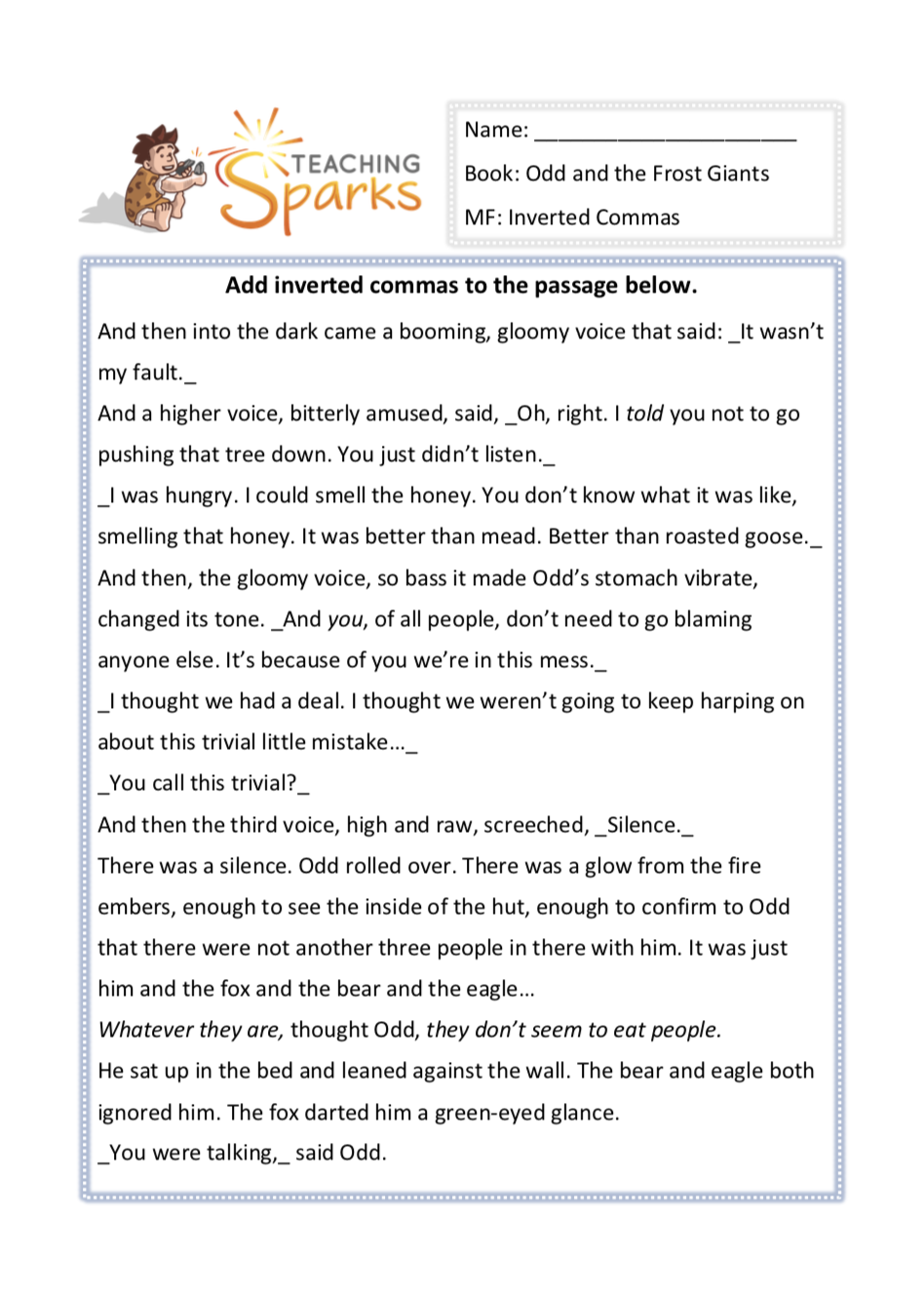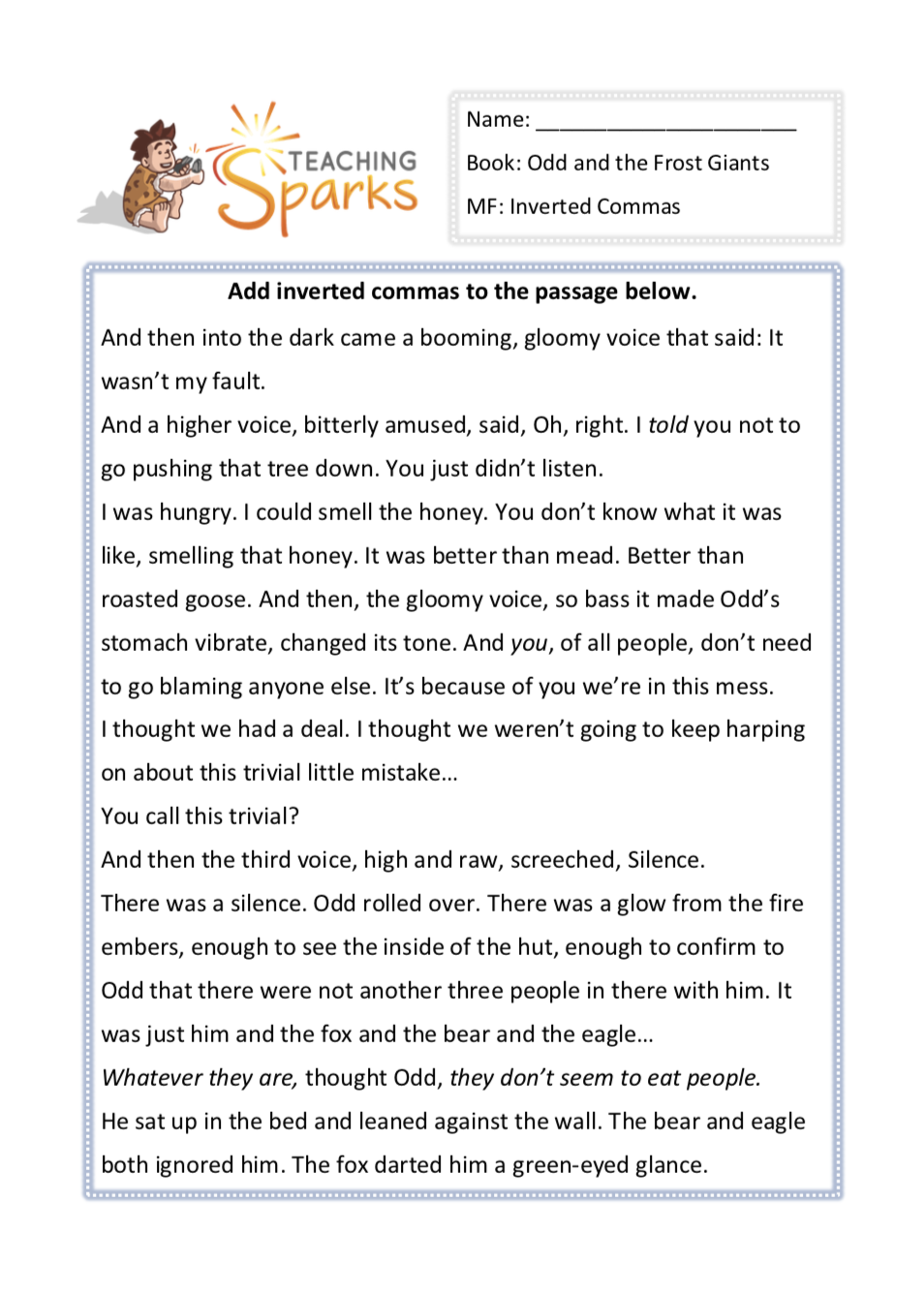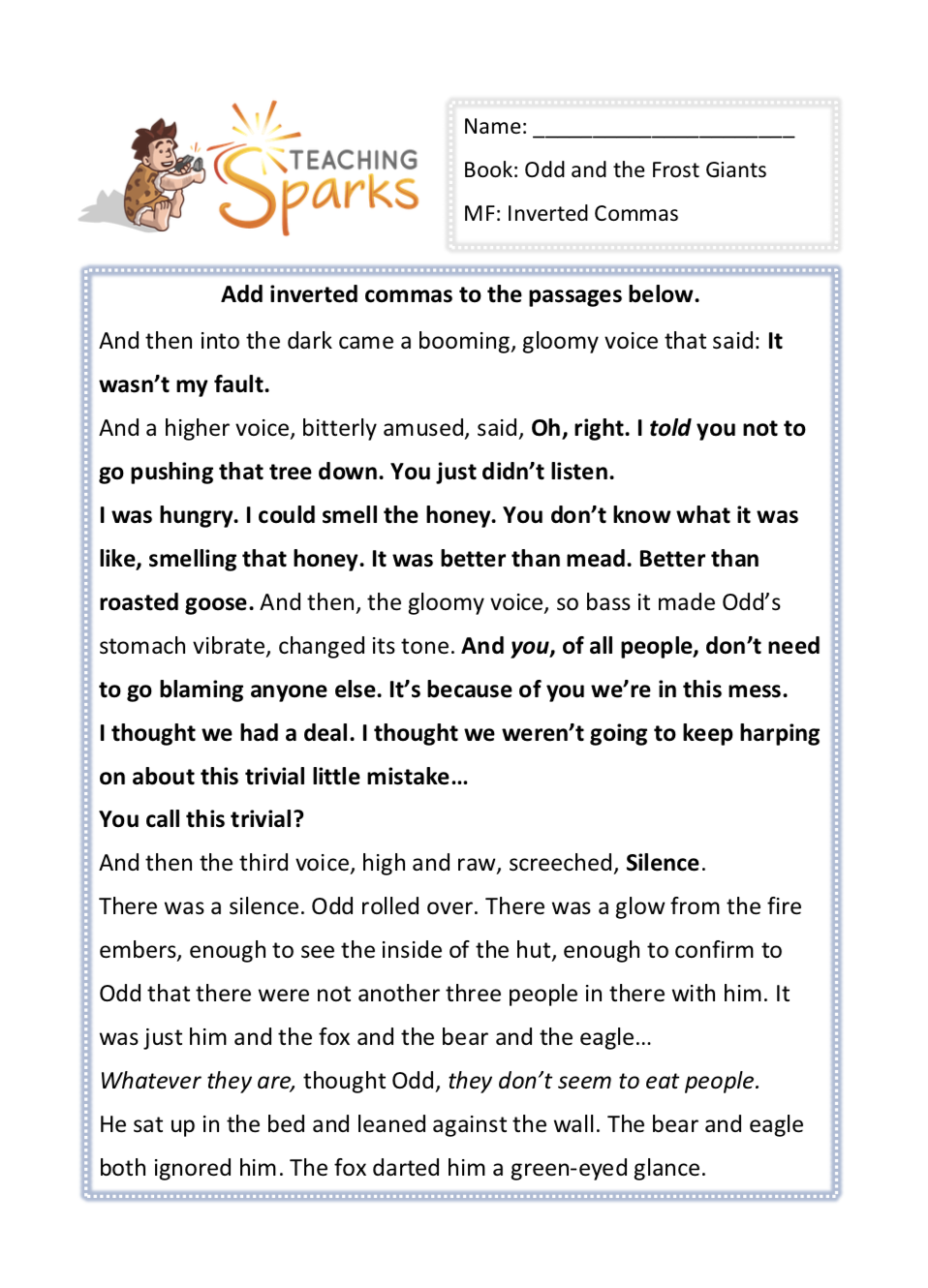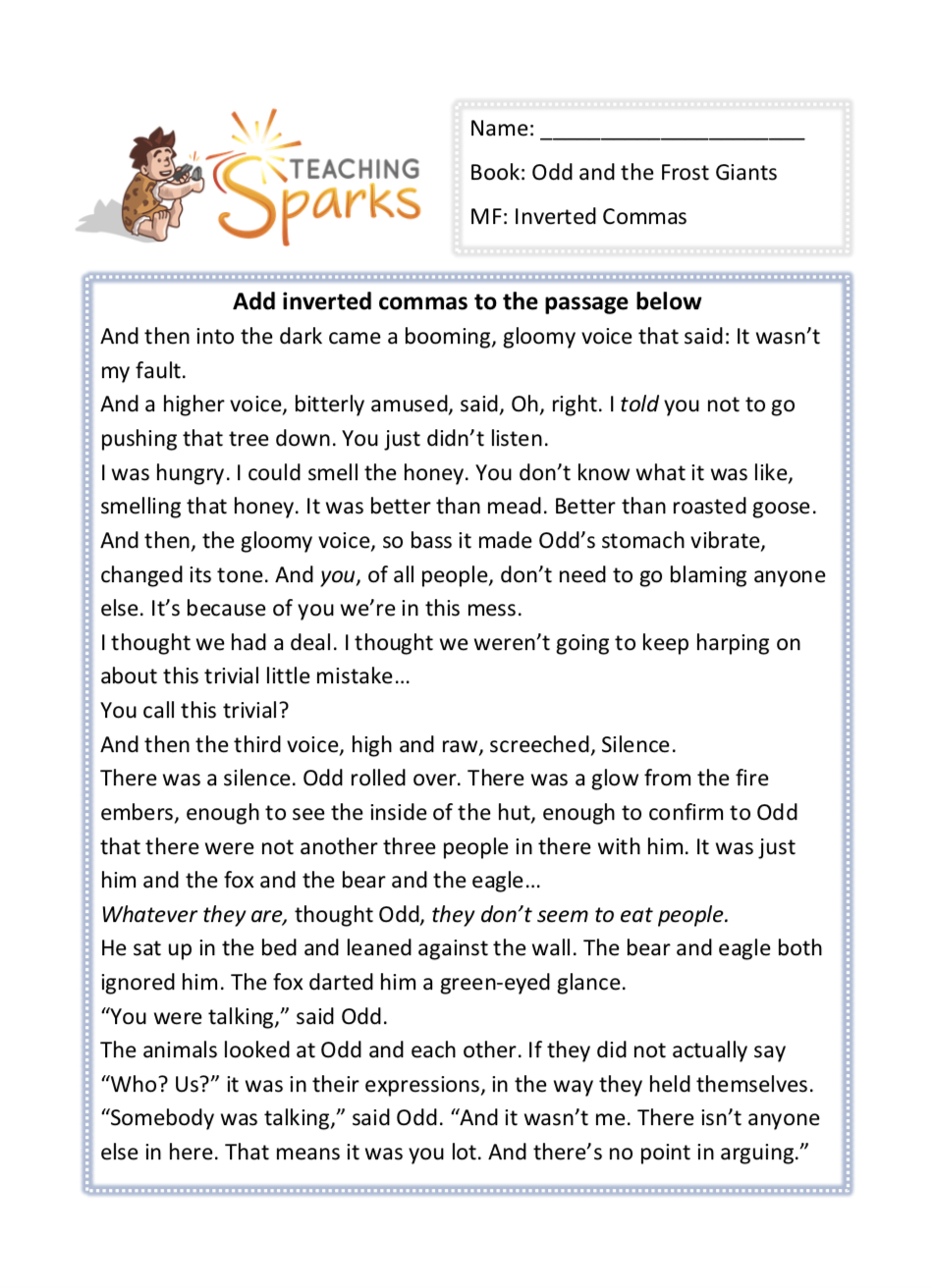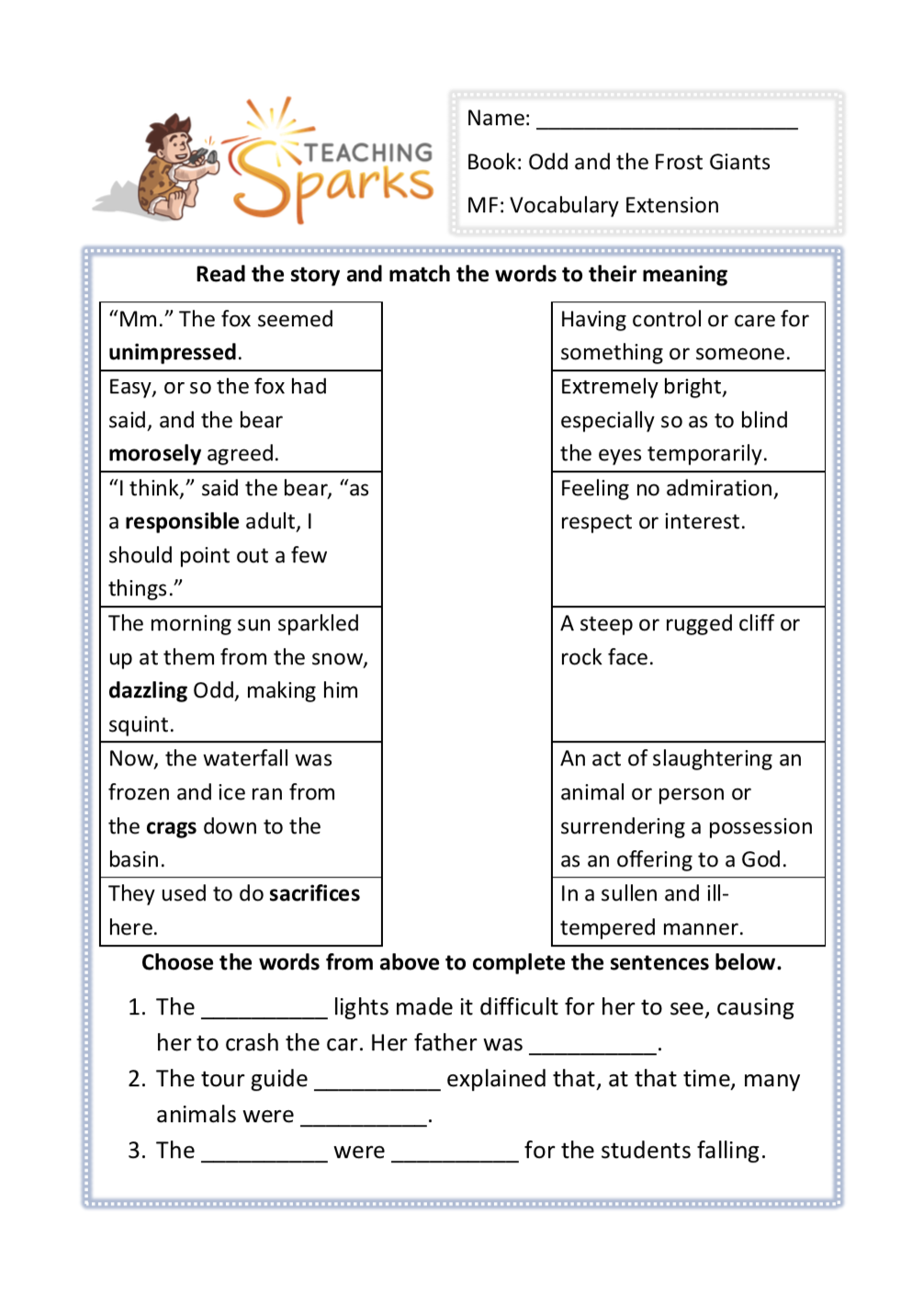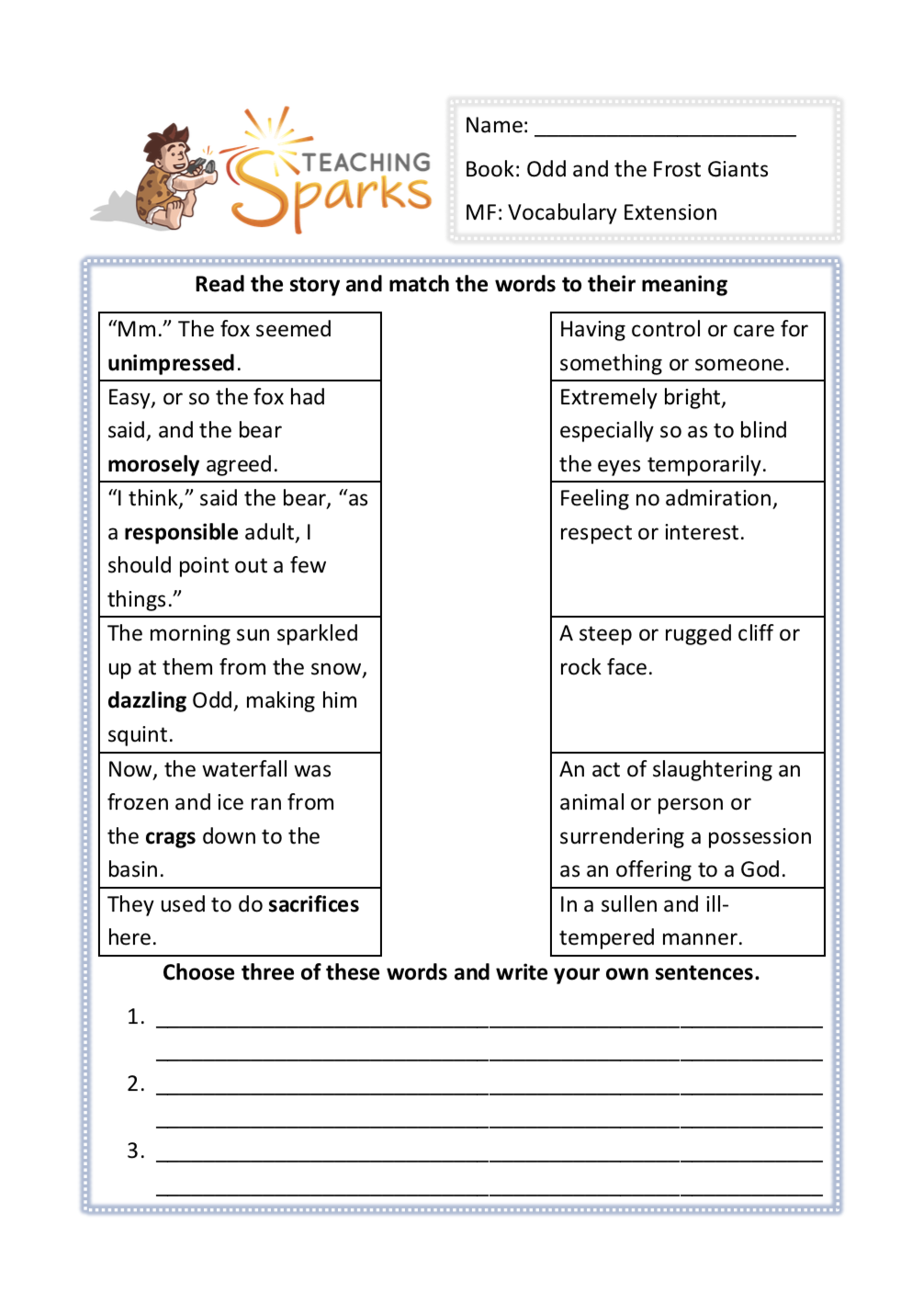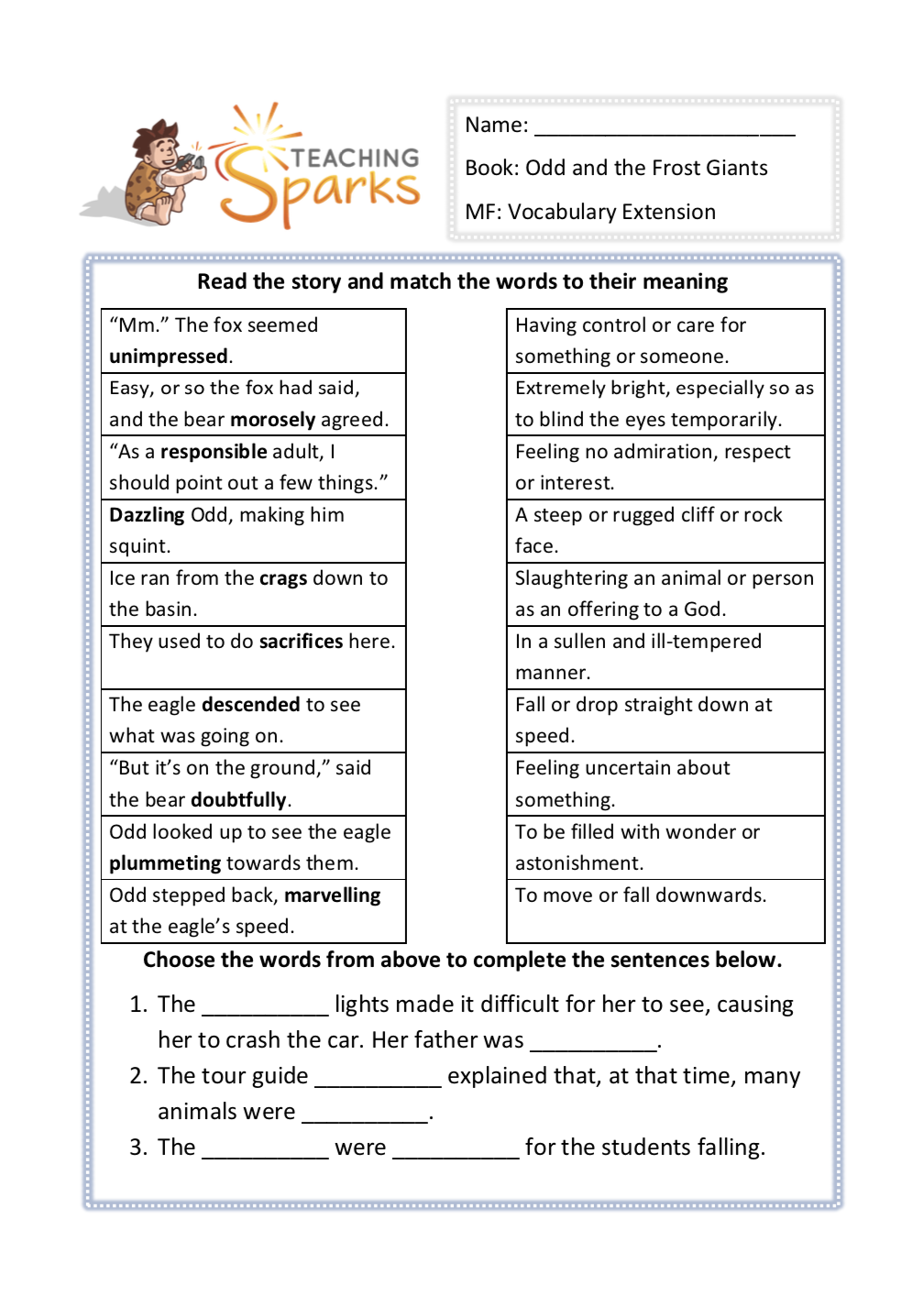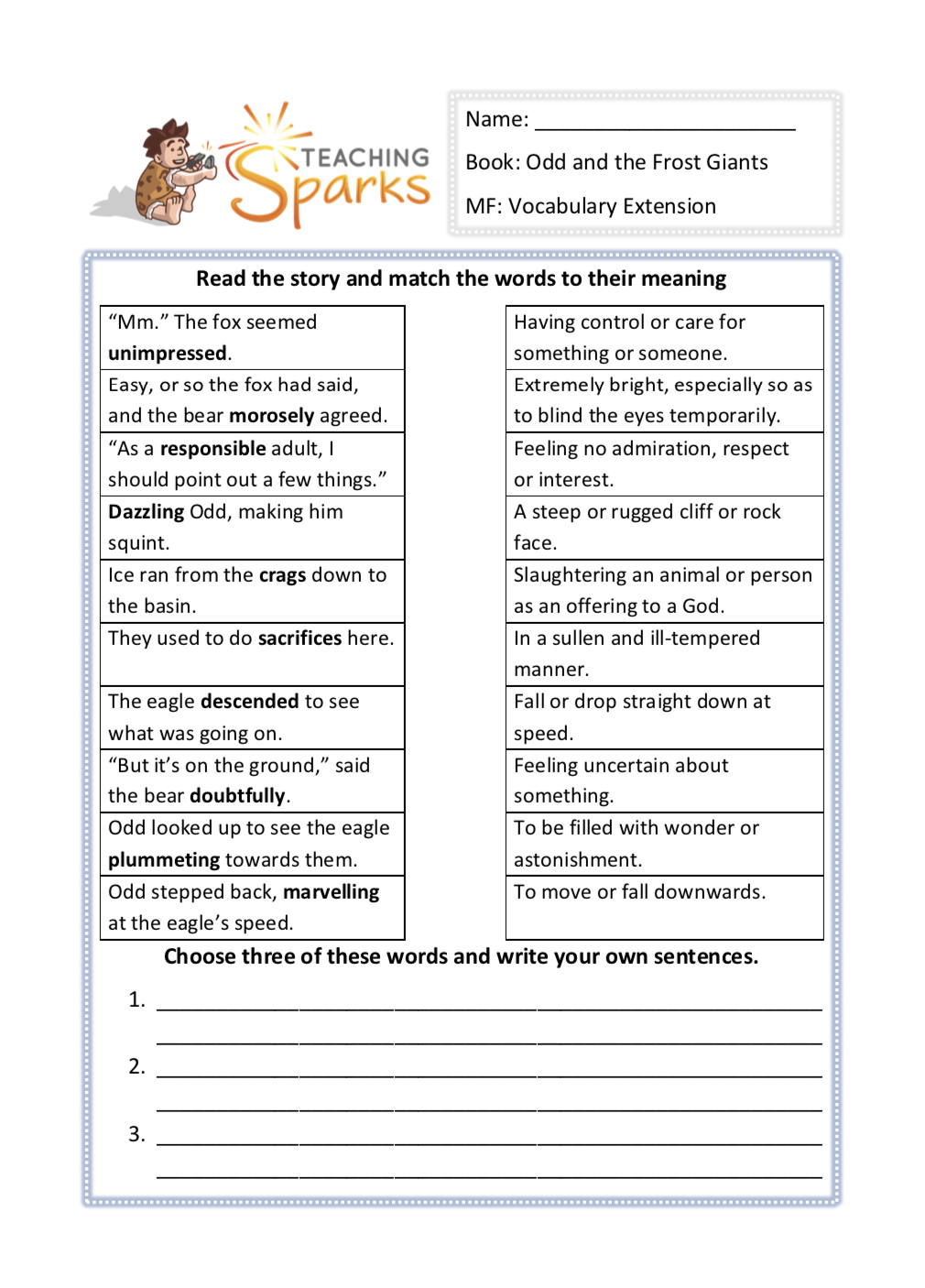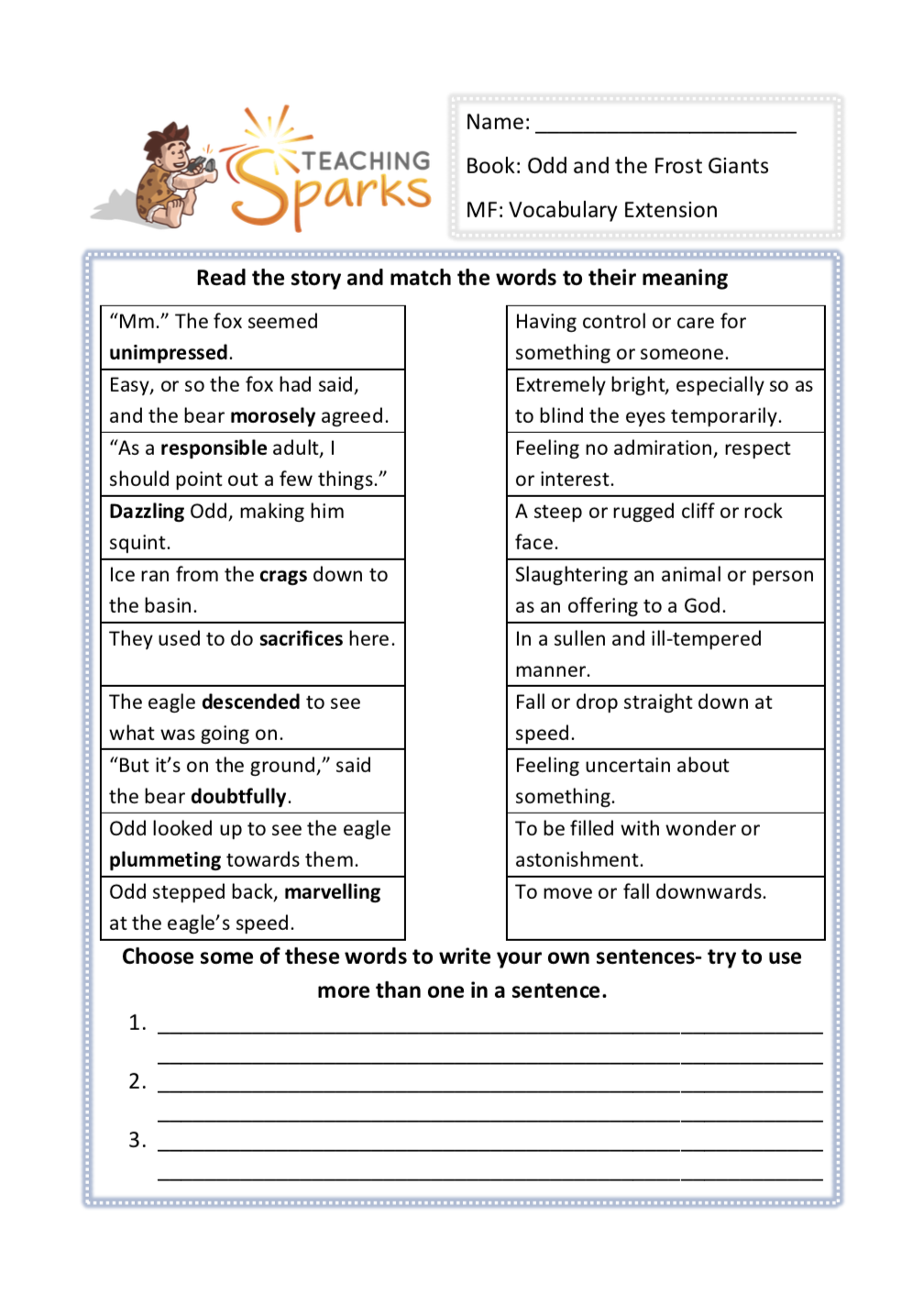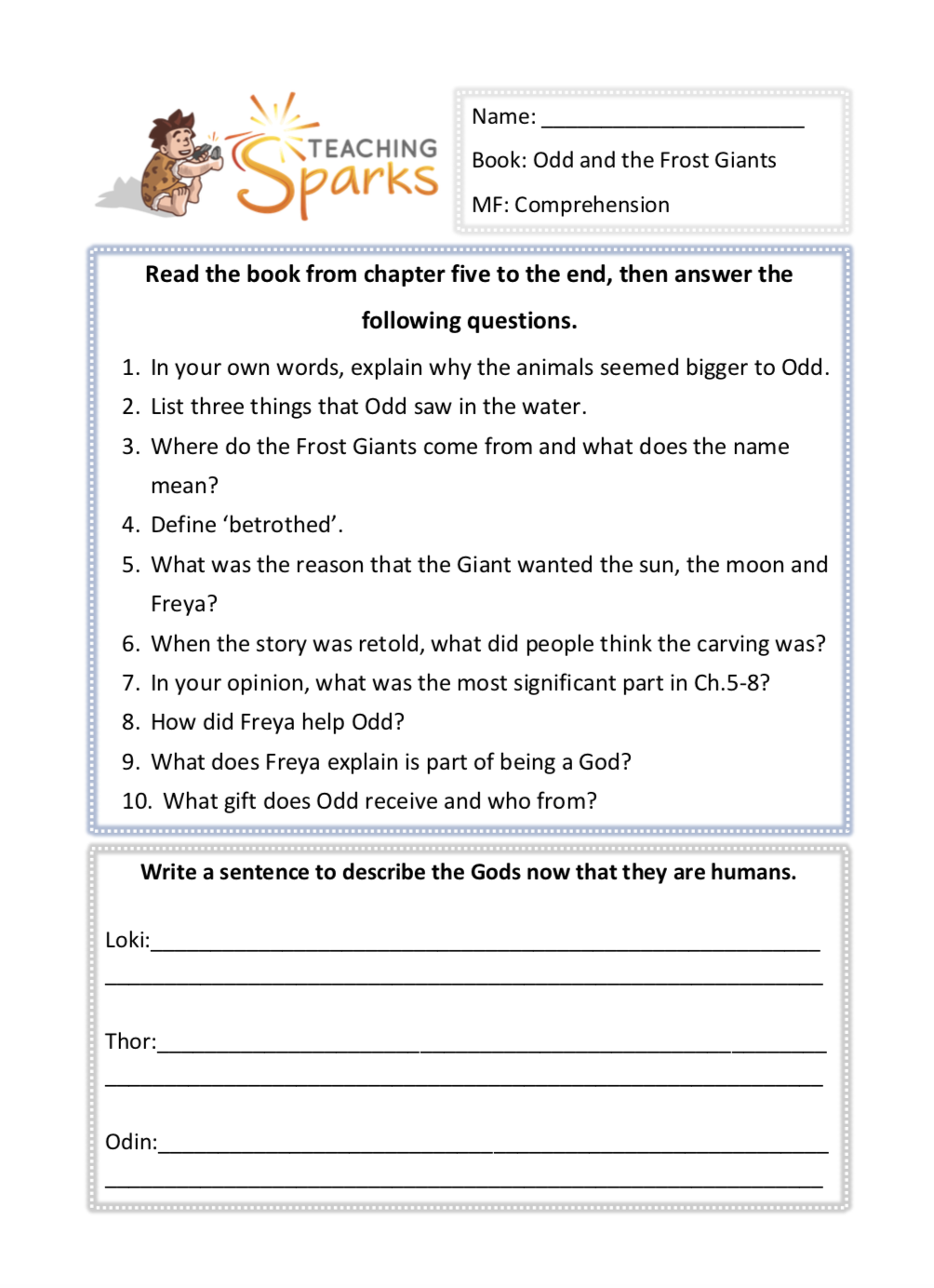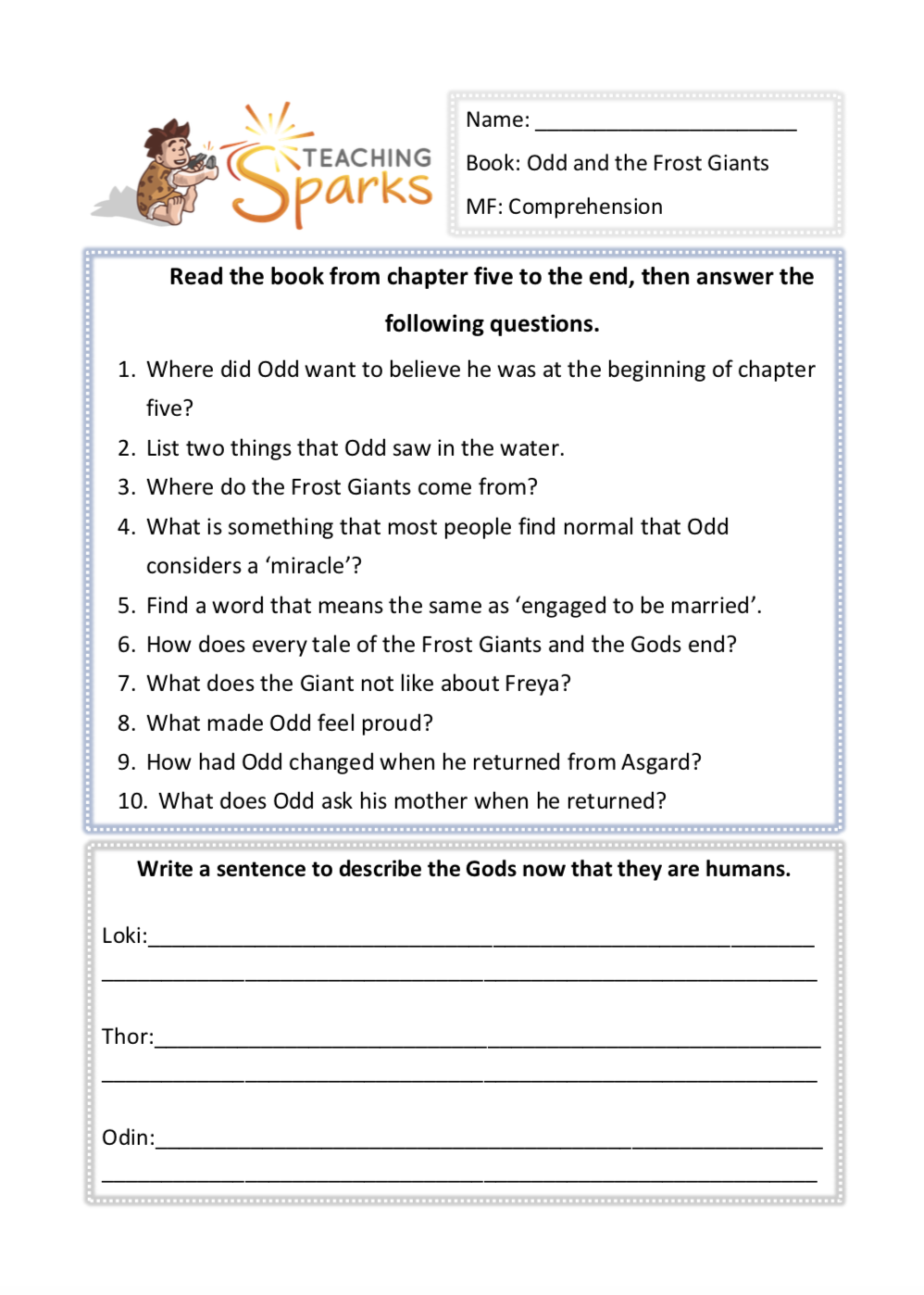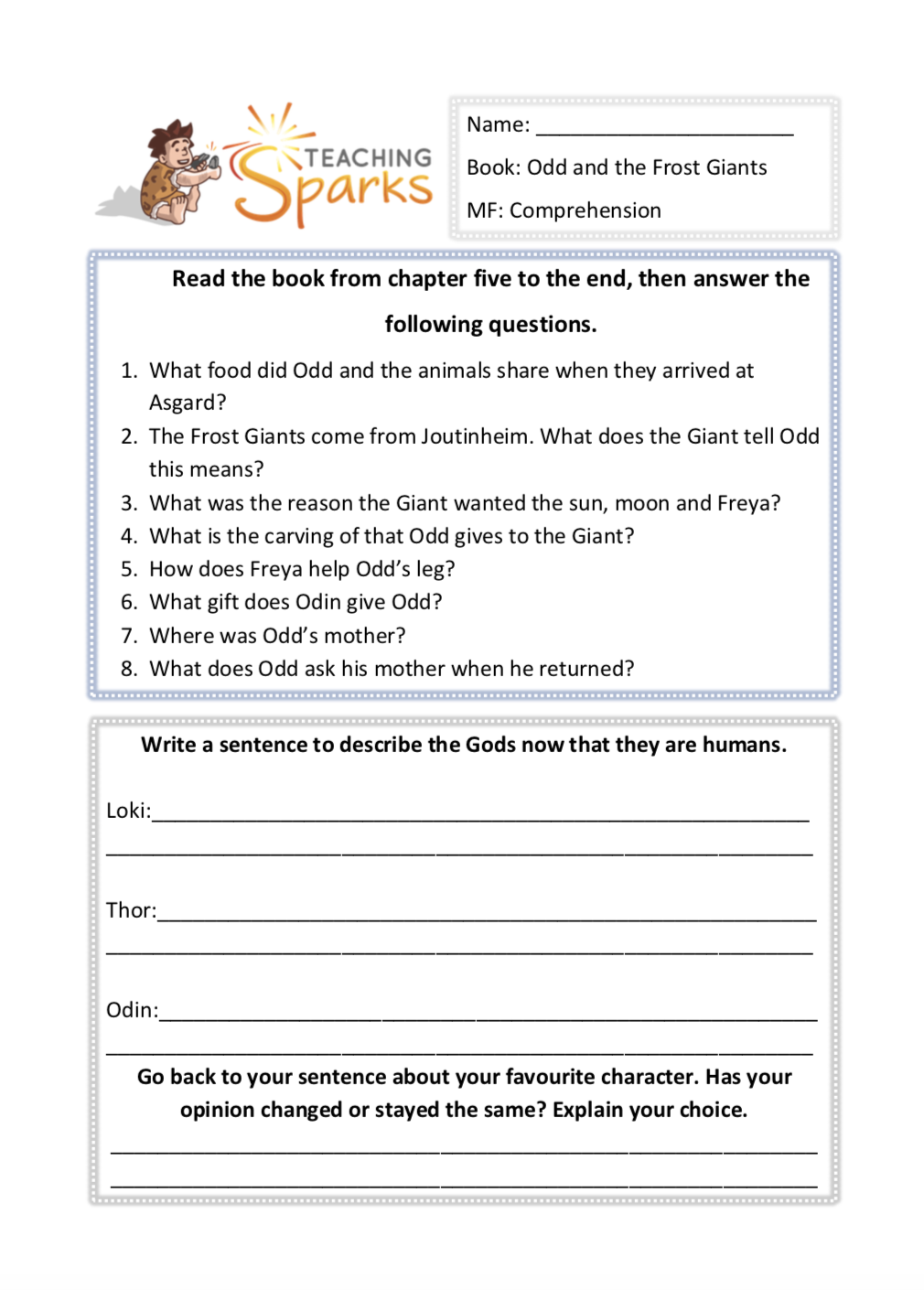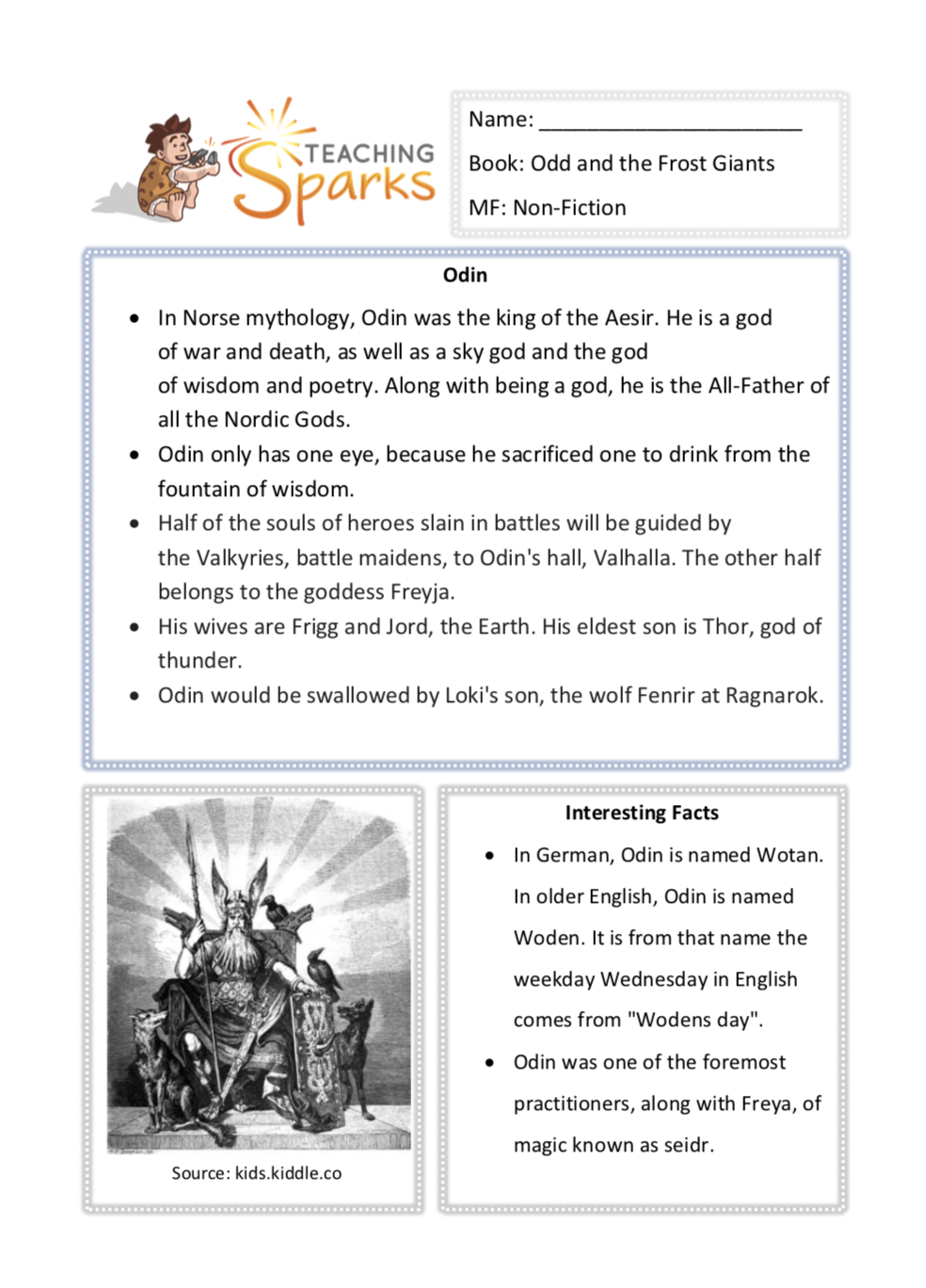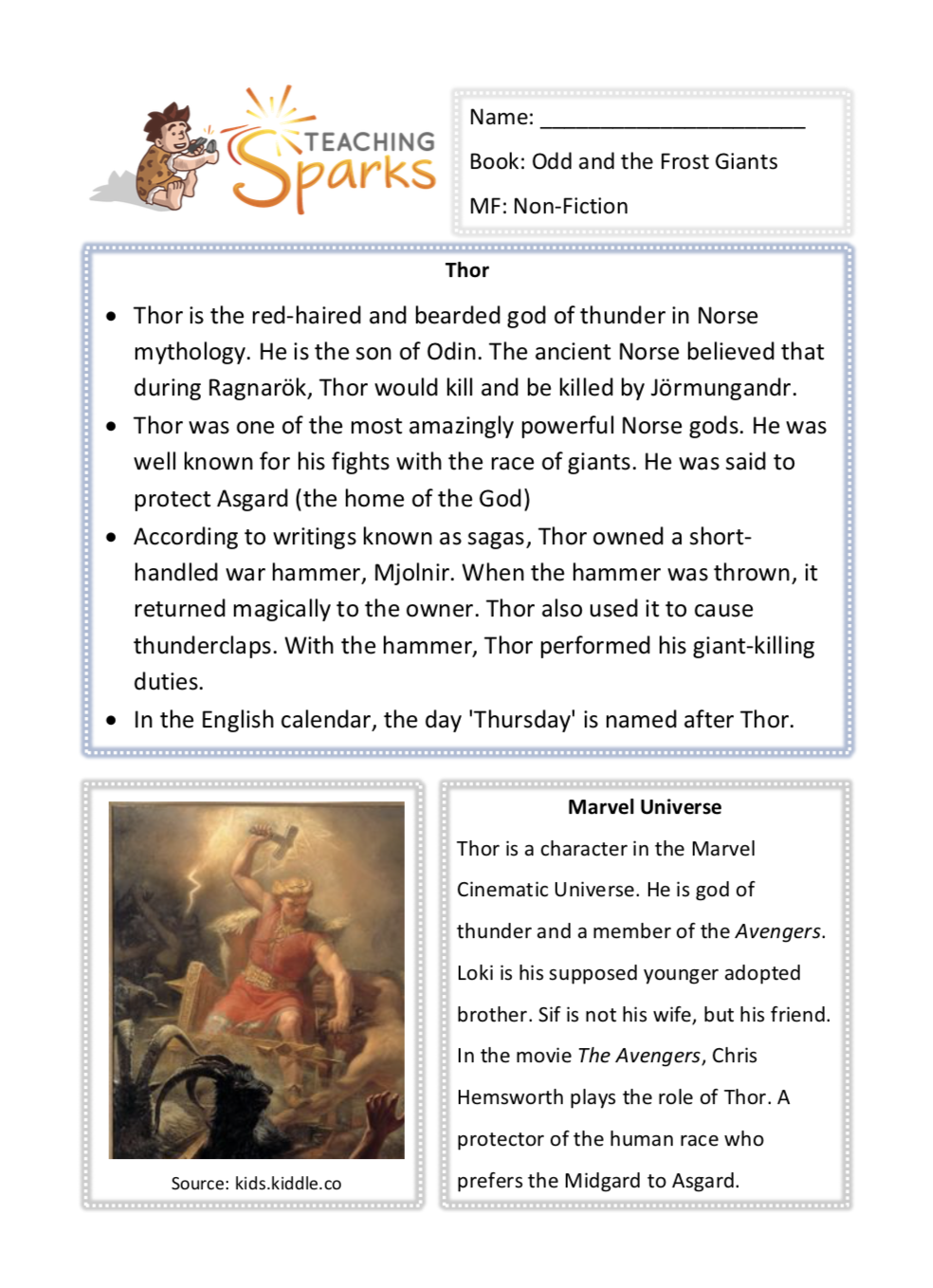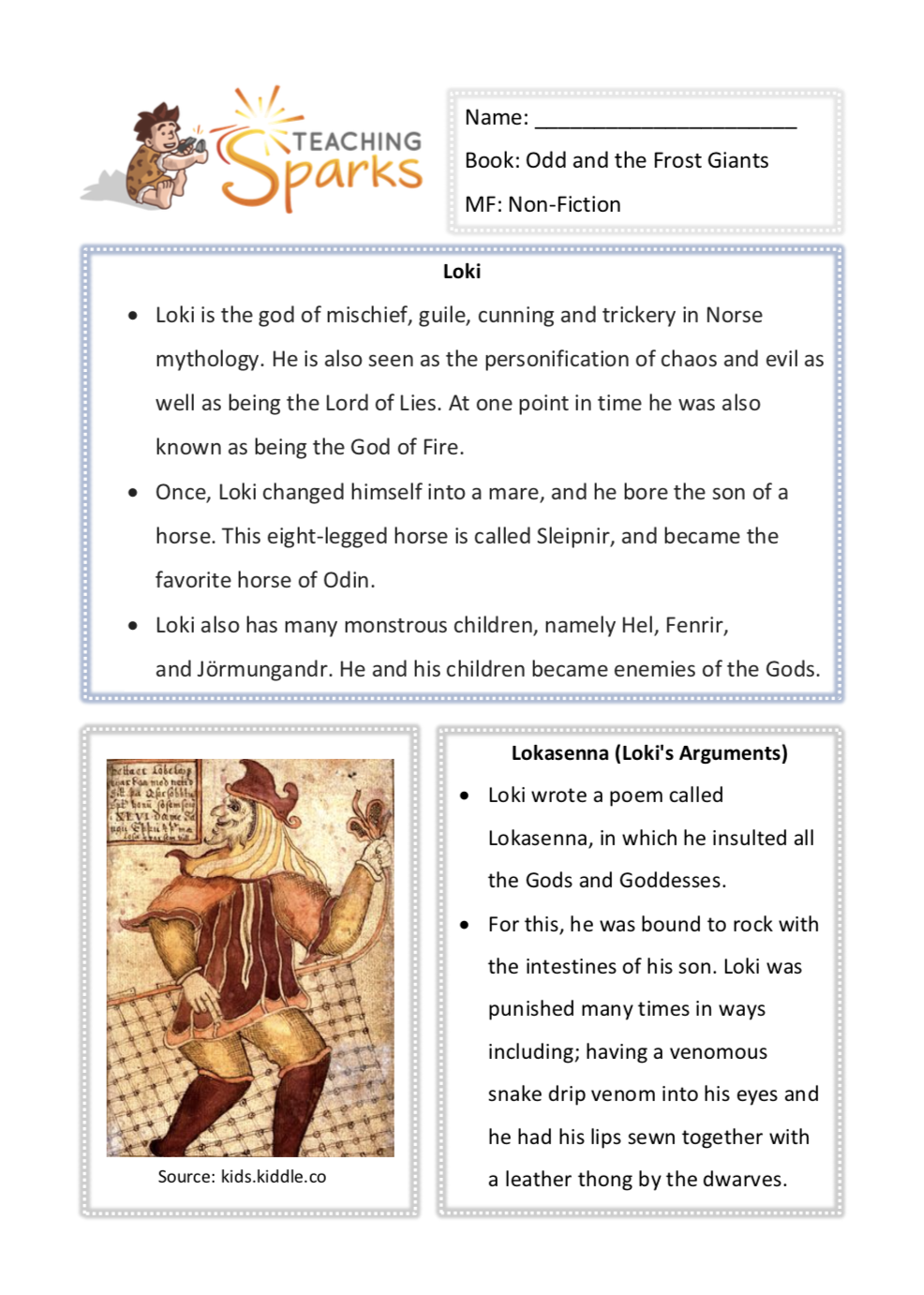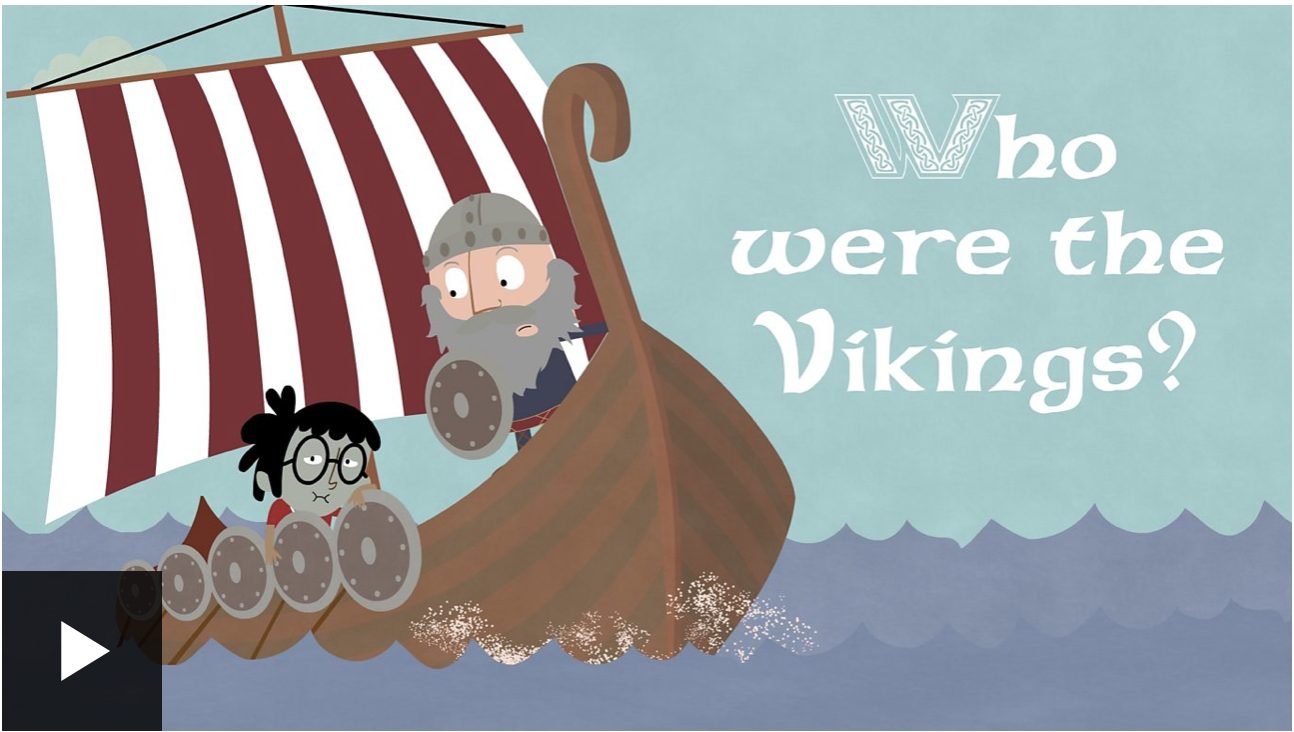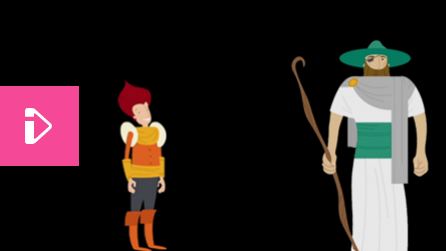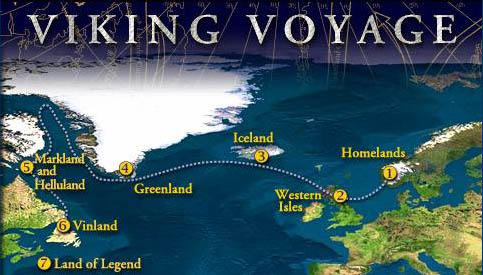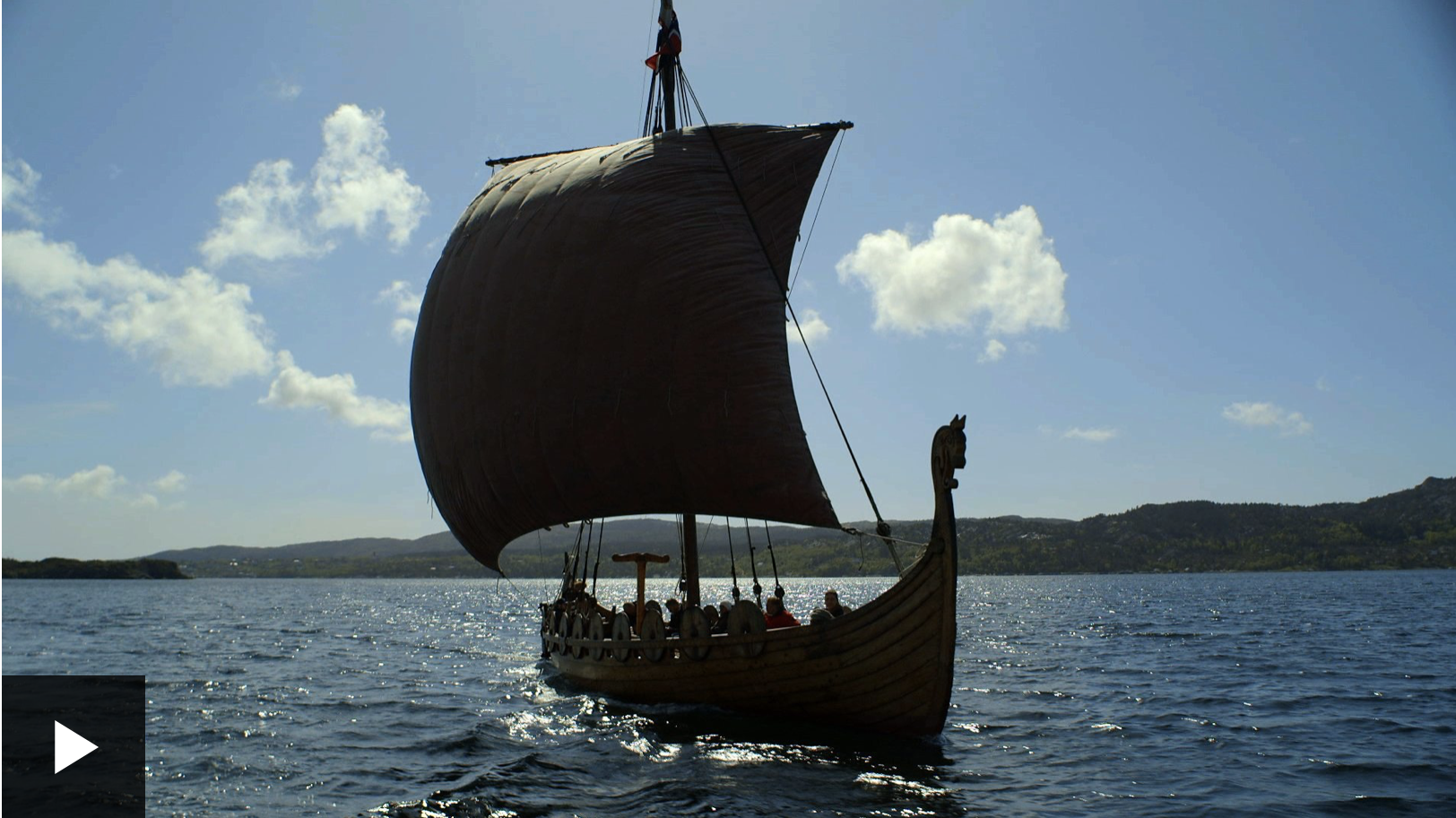Odd and the Frost Giants
Odd and the Frost Giants by Neil Gaiman
Odd’s luck has been bad so far. He lost his father on a Viking expedition, his foot was crushed beneath a tree, and the winter seems to be going on for ever. But when Odd flees to the woods and releases a trapped bear, his luck begins to change. The eagle, bear and fox he encounters reveal they’re actually Norse gods, trapped in animal form by the evil frost giants who have conquered Asgard, the city of the gods…Can a twelve-year-old boy reclaim Thor’s hammer, outwit the frost giants and release the gods? With Neil Gaiman’s wit and style, this story transcends the everyday and becomes a humorous, rich and layered tale of a life lived courageously.
Main Focus: Character Study - Odd - Chapter 1
This is a great resource for your class that helps then delve deeper into Odd and reflect on what they have read about him in Chapter 1.
We have a range of questions to encourage your class to recall the knowledge they have gained about Odd, his name, character, nature, what others think about him and more. We have included a multiple choice version of this activity too for your LKS2 class.
Unlock ResourceMain Focus: Apostrophes Chapter 1
In this resource, your Year 3 / Year 4 class will look at the use of apostrophes to show possession or in contractions.
Your class will identify the words that use an apostrophe in the sentences and explain why they have an apostrophe.
Unlock ResourceMain Focus: Contractions - Chapter 2
This resource for lower KS2 focuses on contractions.
Your class must look at the contractions in the sentences and decide which two words makes it up.
There is also a contractions matching activity to complete.
Unlock ResourceMain Focus: Word Class - Chapter 3
This Year 3 / Year 4 resource is linked to chapter 3 of Odd and the Frost Giants and focuses on word class.
Your class will read the chapter and identify the examples of precise nouns, adjectives, verbs, and adverbs from the extracts provided.
Unlock ResourceMain Focus: Inverted Commas
This resource focuses on inverted commas and chapter 3 of the story Odd and the Frost Giants.
Your class will focus on identifying speech of the characters within the passage.
Unlock ResourceMain Focus: Vocabulary Extension
We have taken some of the lovely vocabulary used in chapter 3 of Odd and the Frost Giants and created a lower KS2 resource for Year 3 / Year 4.
This resource allows your class to look more closely at the words and meanings and how they are used in sentences.
Unlock ResourceMain Focus: Comprehension (Chapters 5-8)
This is a comprehension that covers chapters 5-8 in the story.
Your Year 3 / Year 4 class will answer the questions based on their understanding and knowledge of the story within these chapters.
Unlock ResourceMain Focus: Non-Fiction
In this non fiction resource for Year 3/4 we explore some information about Loki, Odin and Thor.
Unlock Resource
Who Were the Vikings?
This is a super video resource to asks the interesting question – Who were the Vikings?
Unlock Resource
Odin Creates the World
Loki’s first story is an abridged adaptation of the Viking creation myth, focusing on Odin’s role in creating the physical settings for the stories which then follow. Loki recalls how Odin first creates a land of frost and ice called ‘Jotunheim’ – a freezing land where he banishes his enemies, the giants. Then Odin creates ‘Midgard’ – a warm and pleasant land for the first humans. Finally Odin creates ‘Asgard’ – the shining citadel of the gods. And, as a final touch, he joins Asgard to Midgard with a bridge made from a rainbow.
Unlock ResourceViking Voyages
How far did the viking chaos reach?
This is a brilliant interactive resource that shows how far the pillaging and plundering extended.
Unlock ResourceLongships
Wood rots and metal rusts away after a thousand years or more in the ground, but some remains show what Viking ships were like.
Two Viking ships were found by archaeologists in Norway. The Gokstad ship was dug up on a farm in 1880. The Oseberg ship was found on another farm in 1904.
Both ships were buried in Viking funerals between AD800 and 900. The Gokstad ship is 23 metres long. It was big enough for 32 oarsmen and had 16 oars on each side.
These two ships are now in a museum in Oslo, Norway. In 1893, a copy of the Gokstad ship sailed across the Atlantic Ocean from Norway to America.
Unlock Resource
